The Addams Family first came about as a cartoon that was published in “The New Yorker” magazine, but that relationship has had some periods where things were strained. Just like any relationship, when you think about it. Once “Addams Family” started getting shown on television, “The New Yorker” editor William Shawn refused to print any more cartoons.

He believed it cheapened the magazine but still published other cartoons by the same creator. However, once Shawn retired in 1987, the magazine immediately started printing the cartoon again, proving that not everybody agreed with his assessment – if anybody did in the first place.
Getting a Small Start
The Addams family made their first appearance thanks to cartoonist Charles Addams in 1938. That is where the name comes from, in case that was not clear. Addams created the famous family for a cartoon in “The New Yorker” magazine.
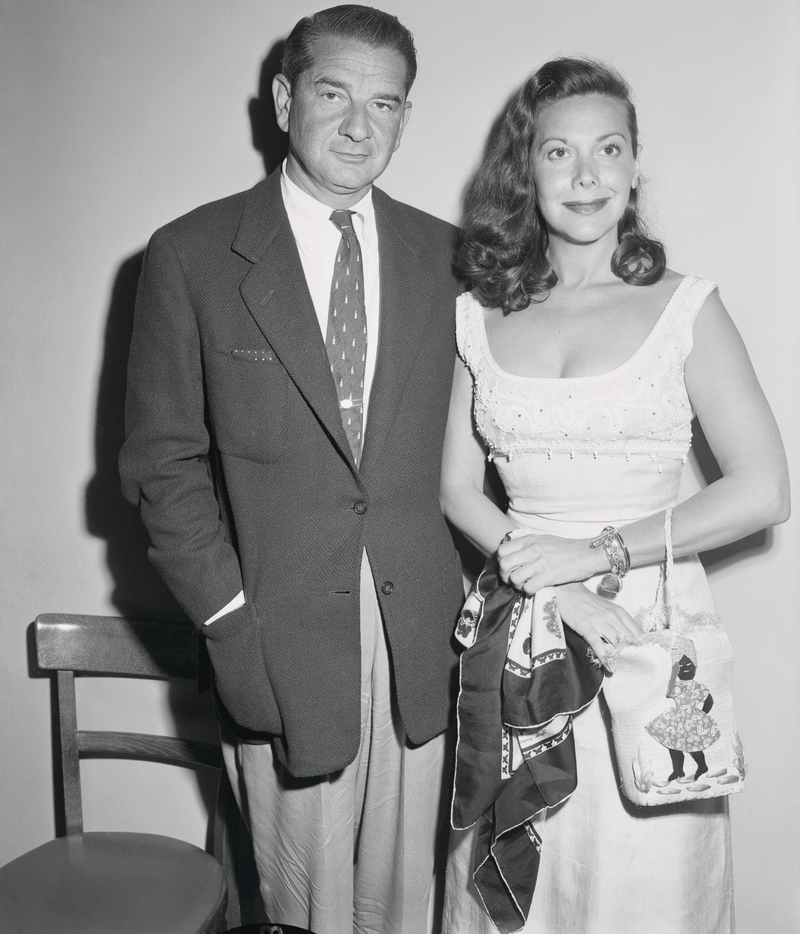
Despite the fact that “The New Yorker” now trades in the kind of humor that will give a sensible chuckle (if you are educated enough to get the joke, that is) and nothing more, apparently, they used to have some pretty wild stuff among the pages. From there, the family started getting into all sorts of adventures and crazy situations.
Inspiration for a Name
“Wednesday” might not be the strangest name we've ever come across, but you have to admit it's a bit uncommon. The name came from a famous nursery rhyme called “Monday's Child,” which gave a character to each day of the week. The line for Wednesday is “Wednesday's child is full of woe,” which seemed to fit the character.
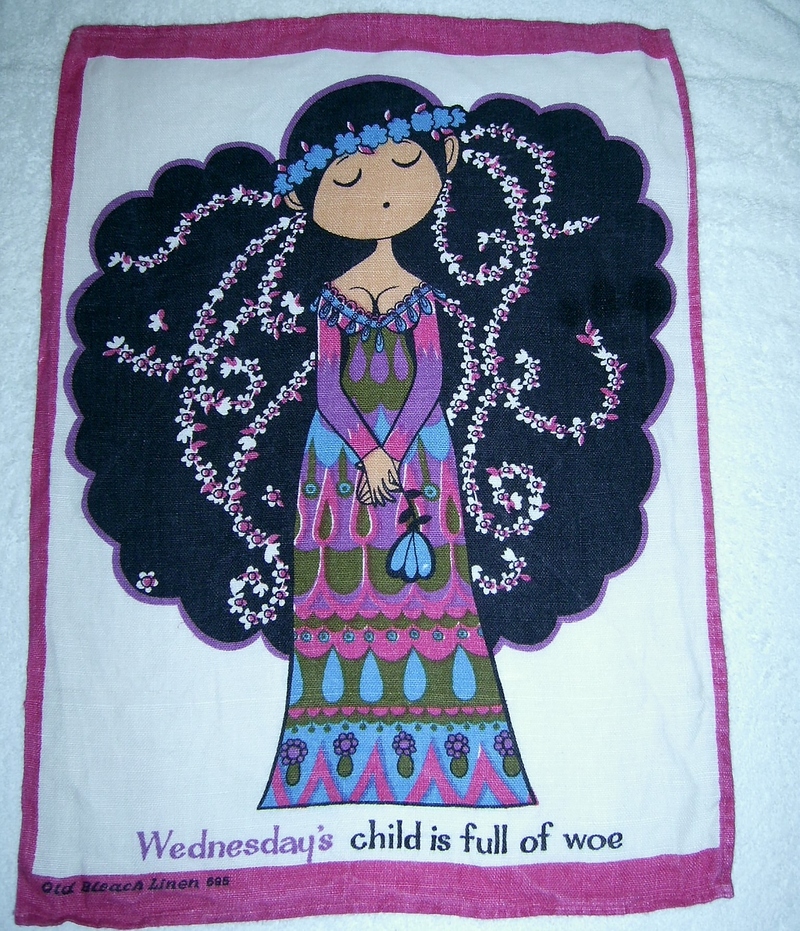
However, it wasn't Addams who gave the girl the name. It was, in fact, the company that was in charge of making the toys to accompany the first television show, all the way back in 1964. Amazingly, the girl had gone without a name for almost thirty years.
Joining the Scooby Gang
“The New Scooby-Doo Movies” was a series of TV-made films that had characters like Batman and Robin, the Harlem Globetrotters, and others join the Mystery Machine for spooky mysteries. The third episode of this series, from 1972, included the Addams family. This included four of the original “Addams Family” cast members.
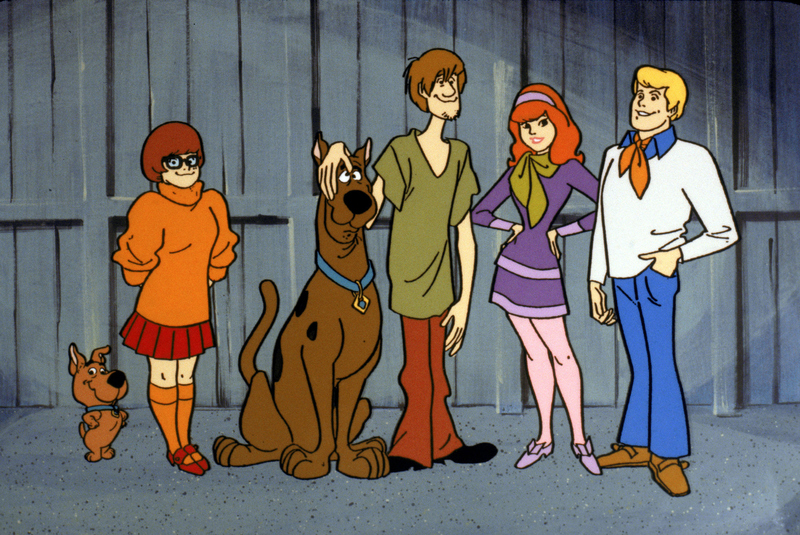
The episode was titled “Wednesday Is Missing,” and the characters in the show were drawn to match the original comics. A young Jodie Foster provided the voice for Pugsley. The gang gets tricked into being babysitters for the children while Morticia and Gomez head off on a second honeymoon. Wednesday does go missing, providing a mystery for the gang to solve.
He Was a Weird One, All Right
As you might have been able to tell from the weird family that he drew, Charles Addams was what you might call eccentric. His house was filled with his macabre interests, such as medieval weapons. He also had a number of torture instruments out on display, which...we don't really know what to think about that.

He had a particular interest in crossbows – he admitted to fantasizing about shooting a robber with one. Clearly, there are all types out there. It also goes to show you that if Charles Addams invited you over, maybe figure out an alibi and send your regrets.
Intended to Be Mute
The original “Addams Family” show began in 1946, and it proved to be a surprising hit. The character of Lurch was originally mute, just a servant or footman who took care of the family. However, that all changed thanks to an improvised line from actor Ted Cassidy.

During filming, he ad-libbed the line “You rang?” when he appeared on the set, and it got big laughs from everyone. After that, the writers started giving him lines. The slow, monotonous tone was a good counterpoint to the energy that the other characters brought, adding yet another dimension to this dark household.
It's Hard Not to Snap Your Fingers
As long as you aren't still in high school, then you can probably hum the “Addams Family” theme tune without having to think too hard. It's one of the most famous and iconic pieces of television music ever, not just for being a good song.
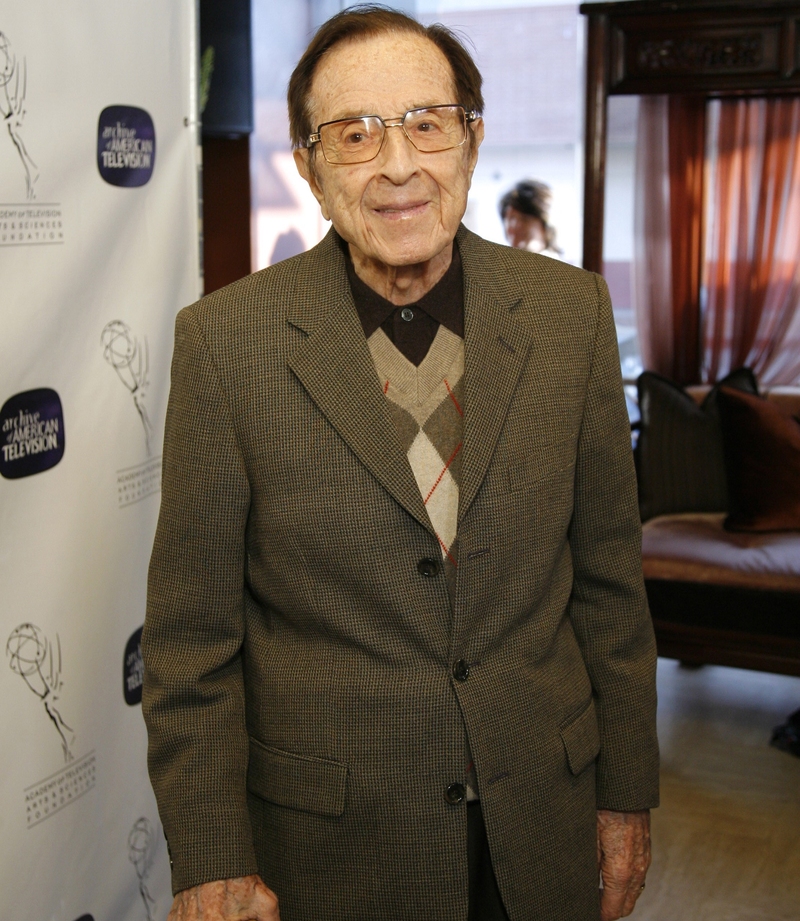
It's also really unique. How many other title tracks use a harpsichord these days? The family is snapping their fingers along with the beat, and Lurch adds a couple of words in, and that's all it takes to be memorable. It's all thanks to composer Vic Mizzy, who was also the performer for the song.
Brought Back in Movie Form
Nothing much happened with the “Addams Family” after the show's two seasons during the sixties, but it was still popular enough to get a resurgence in the early nineties. Scott Rudin, head of production for 20th Century Fox, was riding in a van with a few other studio executives after a movie screening, and the marketing chief's son started singing the show's theme song.
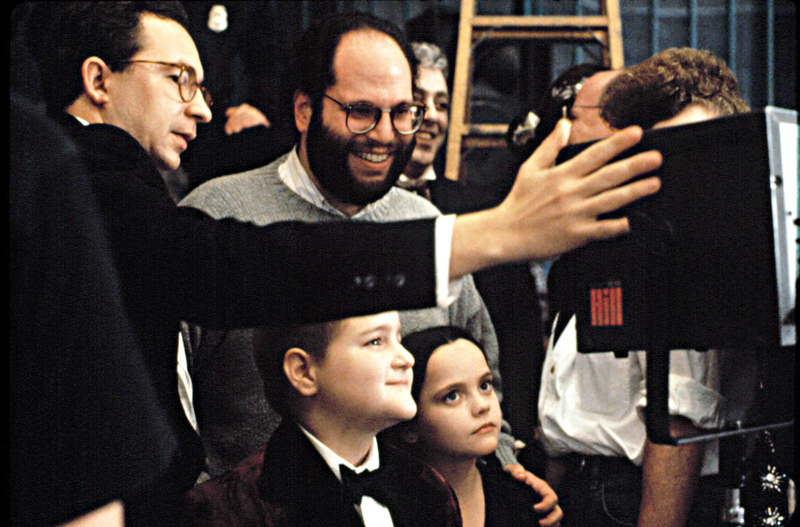
Everybody else in the van started singing along, and Rudin got the idea to pitch a movie. This was in 1991, and in the next seven years, three Addams Family movies would come out. Remember, make a snappy theme song, and no one will ever forget you.
Believe It Hard Enough
When she was a little girl, Anjelica Huston grew up reading her parents' book of “Addams Family” cartoons. Now, as a little girl, you might think that she imagined being Wednesday, but you would be wrong. No, she imagined she was the tall and lanky matriarch of the family, Morticia.

Well, about thirty years later, she had her chance since she was cast in the 1991 movie “The Addams Family.” She also appeared in the 1993 sequel, “Addams Family Values,” but by the time the 1998 threequel came out, she and the rest of the original cast had moved on to other things.
Shaking Up the TV Scene
The original television show had a lot of fun stuff to offer us, but one thing we take for granted nowadays is the relationship between Morticia and Gomez. It was the first sitcom that had the mom and dad being passionate with each other, while other shows of the time stayed away from any talk about what many would call marital duties.

Gomez flattered Morticia constantly, layering on physical affection – his most famous act is probably his tactic of kissing his way up Morticia's arm. Morticia tries to keep a straight face, but it's clear she adores her husband and loves his affection. That's goals, people.
An Addition to His Jacket Pockets
During the television show in the sixties, Gomez Addams, played by John Astin, was a smoker and lover of cigars, just like Astin himself. While showing a loving father smoking on a television set isn't something we see much of these days, there's a little more.

Astin would stash the cigars – sometimes while still lit – inside his coat pockets during a scene or between shots. We hope we don't have to point out the problem with this. In order to keep him from burning himself, the prop department lined all his coats with...asbestos. There's another thing that we don't see all that often anymore, and for good reason.
He Went for Lurch First
Actor John Astin set the bar high when it comes to playing the witty, loving patriarch of the Addams family, but it almost wasn't to be. When he walked into his audition, he was there to try out for the part of Lurch. Instead, he found himself in the role of Gomez.

However, he readily states that it all worked out for the best. Astin said that he shared a lot of personality traits with Gomez and that the character seems more like an extension of his personality than any other role he had taken in his career. It was less acting and more exaggeration.
Making Himself Into a Monster
Christopher Lloyd, famous for playing Doc Brown in the “Back to the Future” films, had to make a few changes to look like the character he played in the “Addams Family” movies, Fester. First off, since Fester is bald, he had to shave his head.

He's gone through some natural hair loss by now, but it meant a lot more back then. Additionally, Lloyd had to crouch down to appear shorter than he was. Lloyd stands at six feet, one inch, but Fester is presented as much smaller. This change also allowed Lloyd to give Fester his characteristic unsteady hobble as he walked around.
Famous for an Unexpected Reason
You wouldn't expect the Addams Family to be such a big part of pinball history, but the game that came out in 1992 following the first 20th Century Fox movie has proved to be the best-selling pinball machine of all time. It's such an odd choice, but it kind of makes sense.

It had the same kind of strange, kooky appeal as the movie, with lots of fun features that even expert pinball players weren't expecting. This included things like a mechanical hand that picks up balls and new dialogue from the actors in the film. It's sold over twenty thousand units, which might not seem like a lot, but remember: pinball games.
Winning Lots of Awards
When MC Hammer was asked to make the theme song for the 1991 film “The Addams Family,” nobody knew just how successful it was going to be. The song was “Addams Family Groove,” and it reached number seven on the Billboard Top 100 in the United States, no doubt thanks in part to the popularity of the movie.
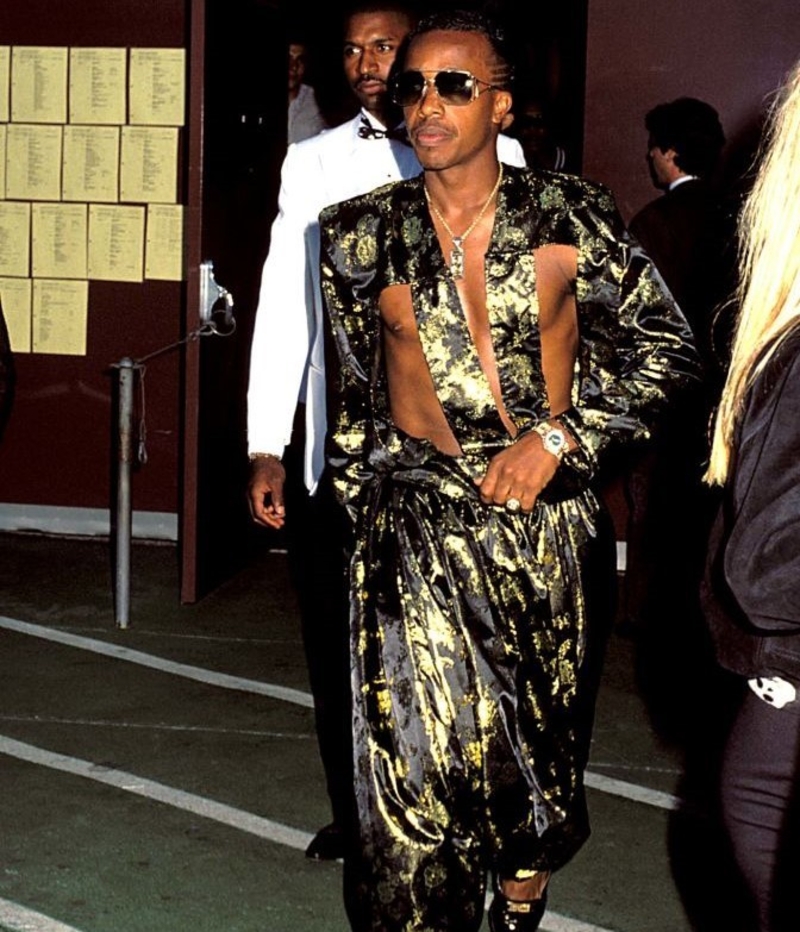
However, that was not the only accolade the tune earned. The song also won a Golden Raspberry Award for the worst original song. Maybe people had just gotten out of Mr. Hammer – the song was his last top-ten hit in the States.
Talk to the Hand
One of the most unique members of the Addams Family (and that's saying a lot) is Thing, the disembodied hand that roams around. While you might think it's some CGI magic, it turns out that the 1991 movie used Canadian magician Chris Hart to be the hand.

He'd sit for hours under a table, keeping only his hand exposed until he went numb. It took four months to shoot his scenes since each one had to be shot twice – one with Hart and one without. After that, Hart's body was erased and overlaid with the version lacking him, creating the disembodied hand.
Lurch Mania
In what may be one of the strangest facts about the Addams Family, did you know that Lurch, from the original television show, had a legion of teenage girl fans? The actor, Ted Cassidy, said he received a ton of letters from smitten young women.
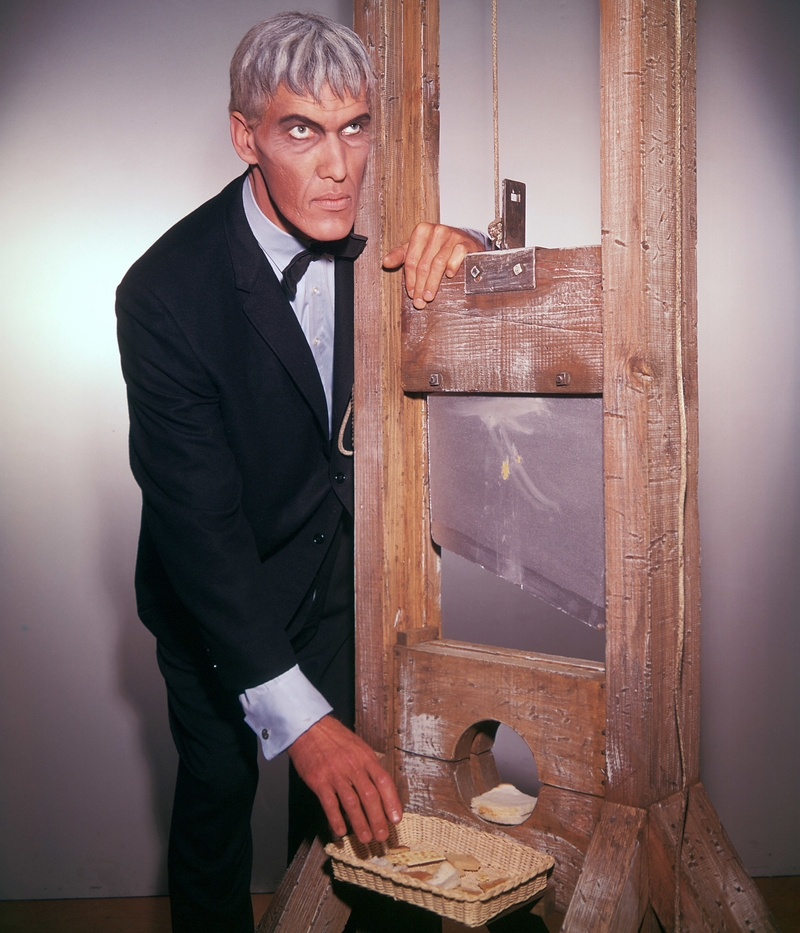
Now, Cassidy was by all accounts a handsome man, but you can't exactly look at his look as Lurch and call him a heartthrob. Still, he received plenty of these letters, with some of them even going so far as to say they thought he was cuter than the Beatles! It takes a special kind of person to see that sort of thing.
An Omniglot of Love
One of the more famous aspects of the relationship between Gomez and Morticia is the pet names that they would call each other. Now, most of these came from Gomez's direction, but that isn't to say that Morticia was above the influence.

A number of these pet names came from other languages, including Bubeleh from Yiddish, Mon Cher and Mon Amour from French, and Querido from Spanish. Gomez liked to call Morticia beautiful in numerous languages, such as Cara Mia from Italian, Querida or Querida Mia from Spanish, and Cara Bella, which is Spanish for a beautiful face, and Italian for beautiful darling.
Putting on the Face
Both Carolyn Jones – who played Morticia in the original television series – and Anjelica Huston – who played her in the movies from the nineties – had to spend hours in the makeup chair every morning. Incredibly, neither of the famous beauties could hope to match the deathly pallor of Morticia Addams. Jones would regularly take two hours, while Huston had to take three.

Early makeup calls aren't an unusual thing when it comes to Hollywood, but these two often had to report to the makeup chair as early as four in the morning. Well, we all know that Gomez appreciated it deeply.
Acting Insane as a Defense
During the sixty-four episodes of the original "Addams Family" television show, Gomez Addams frequently has a twisted, strange, even maniacal look on his face. This expression was an invention of actor John Astin, and he came to it in an unexpected manner.
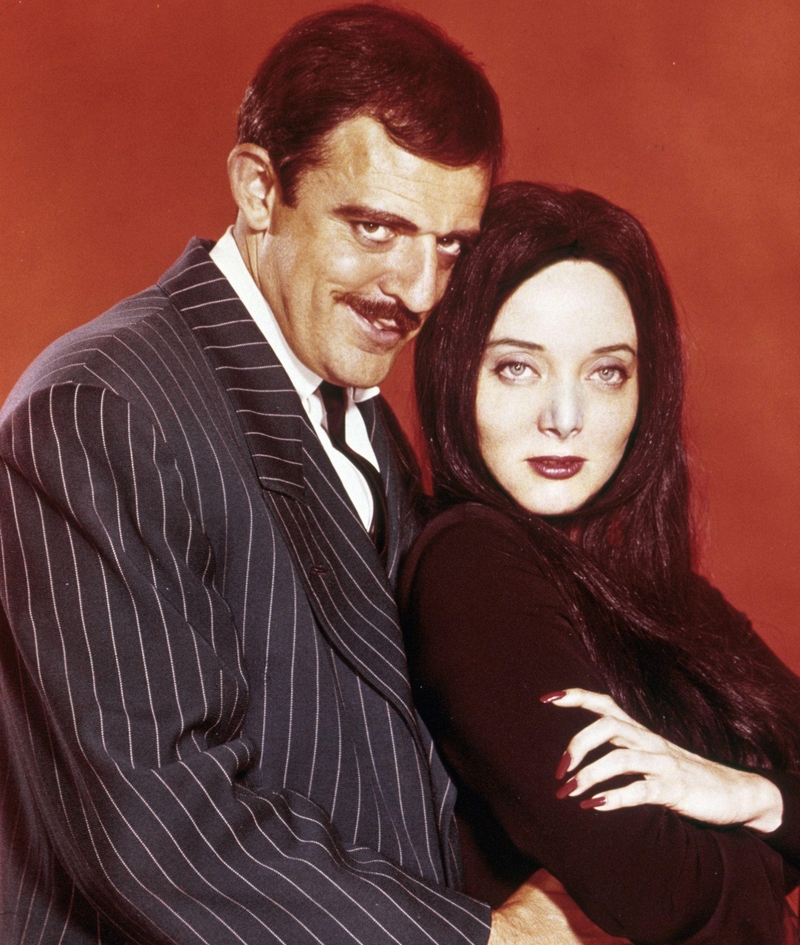
While Astin was living in New York City, he had a residence in a rougher part of town. In order to keep people from harassing him as he walked from his apartment to the subway, he would act a little insane. You have to admit it; if you saw a person acting “a little insane” on the street, you probably wouldn't bother him, either.
Television? Unthinkable!
The Addams Family first came about as a cartoon that was published in “The New Yorker” magazine, but that relationship has had some periods where things were strained. Just like any relationship, when you think about it. Once “Addams Family” started getting shown on television, “The New Yorker” editor William Shawn refused to print any more cartoons.

He believed it cheapened the magazine but still published other cartoons by the same creator. However, once Shawn retired in 1987, the magazine immediately started printing the cartoon again, proving that not everybody agreed with his assessment – if anybody did in the first place.
Proving He Had What It Takes
Jackie Coogan auditioned for the role of the strange Uncle Fester in the sixties television series, but the producers turned him down. Still, Coogan wasn't going to be stopped just because they had said no.

After the audition, he shaved his head, came up with his own costume, and did his own makeup before coming back in to beg for another audition. His efforts proving he could look the part, as well as his acting chops, got him the role. We don't know if Jackie Coogan was able to power light bulbs by placing them into his mouth, but we doubt it.
Made for the TV Show
Most of the Addams family came to the “New Yorker” fully formed back in the thirties, but there's one exception. Cousin Itt – from Gomez's side of the family, was added to the television show in the sixties. It came at the suggestion of producer David Levy, though the reason for this is unknown.
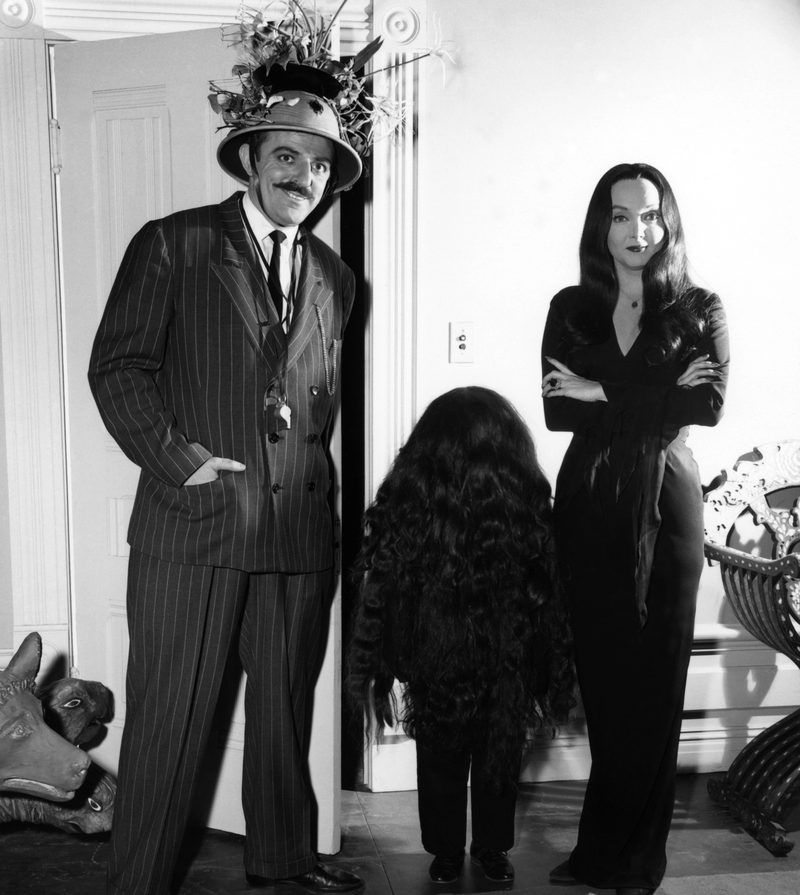
Charles Addams eventually provided sketches of the character. Unlike the rest of the family, Cousin Itt doesn't live in the house, but he does frequently visit and has his own room when he wants to stay the night. Nobody knows what he looks like under all that hair, and we aren't likely to find out.
Left or Right?
During the television show, Thing was portrayed by actor Ted Cassidy, who also played Lurch. Seeing as how Thing was just a hand, you'd think that it would be nothing more than having your hand come out of a box to point at things for a joke.
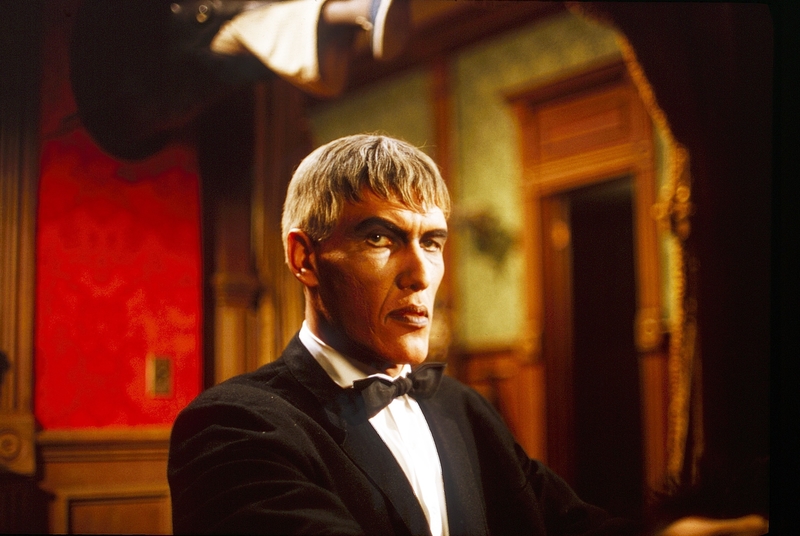
And, well, that's more or less what the job was all about. Cassidy would sometimes get a bit bored doing it, so – without telling anyone – he would switch hands. We imagine it was caught during editing, but nobody really minded that much. You can also see Cassidy's arm during a few select shots when Thing reaches out of his box.
Coming Up With Special Gibberish
One of the things about Cousin Itt was that he couldn't really be understood by anyone except his family. Other people who interacted with him or made their way into the house of the Addams family had no chance to work out what he was trying to say.
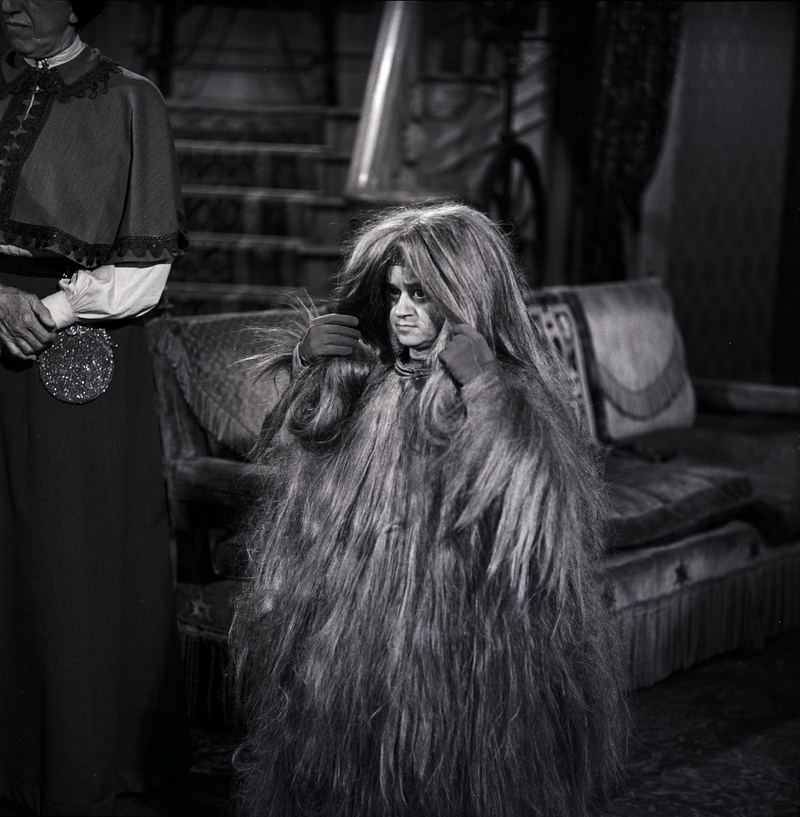
In order to create the unintelligible gibberish that comes out from under all that hair, one of the producers spoke random sayings and phrases, sometimes even random syllables, into a tape recorder, and then played it back at high speed. This lets most people realize that they weren't supposed to be able to understand him.
He Didn't Actually Speak French
Thanks to all the French sayings the character Gomez had, many people would walk up to John Astin and speak French to him, thinking that he could understand them. The problem was that he couldn't really understand French; he just knew those sayings or could recite the lines phonetically.
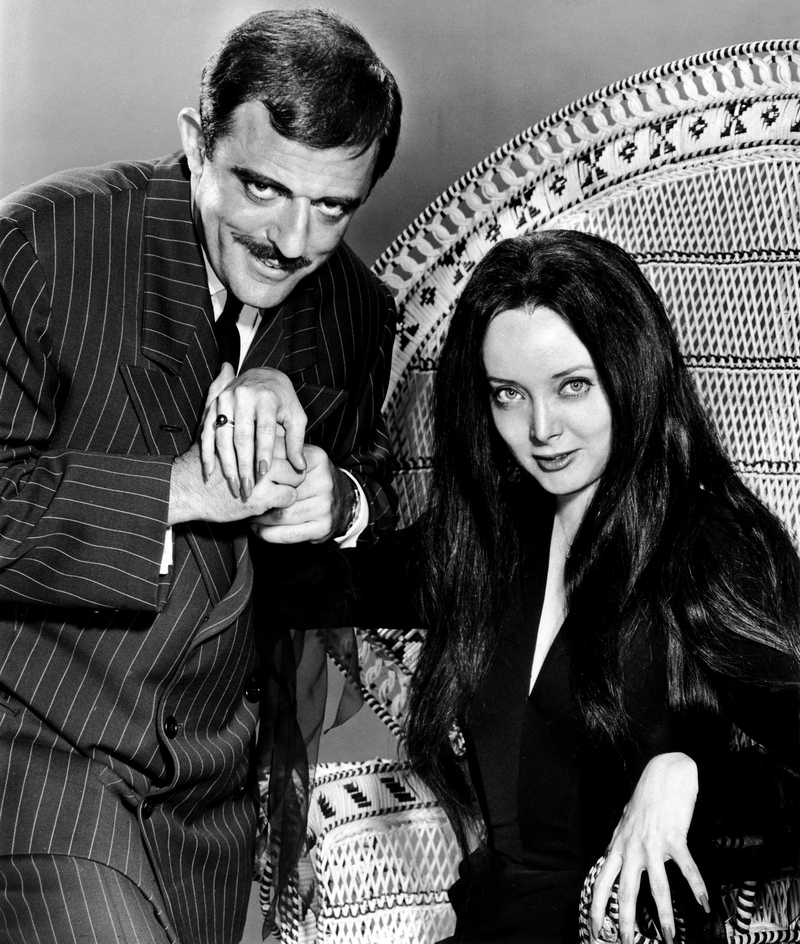
Maybe they thought he was actually his character, or maybe they thought Astin actually knew French. No such luck. In a related event, Ringo Starr of the Beatles once grabbed Astin's arm and started kissing his way up, similar to how Gomez would kiss Morticia. Astin stopped the Beatle halfway up the arm.
Inspiration for Their Characters
Some of the characters in this family aren't exactly your normal family members, and for the actors to be inspired, they had to take knowledge from a few strange places. In order to play Morticia in the first two movies, Anjelica Huston watched “Grey Gardens,” a 1975 documentary about a pair of strange women, mother and daughter, who had lived in a big mansion by themselves.
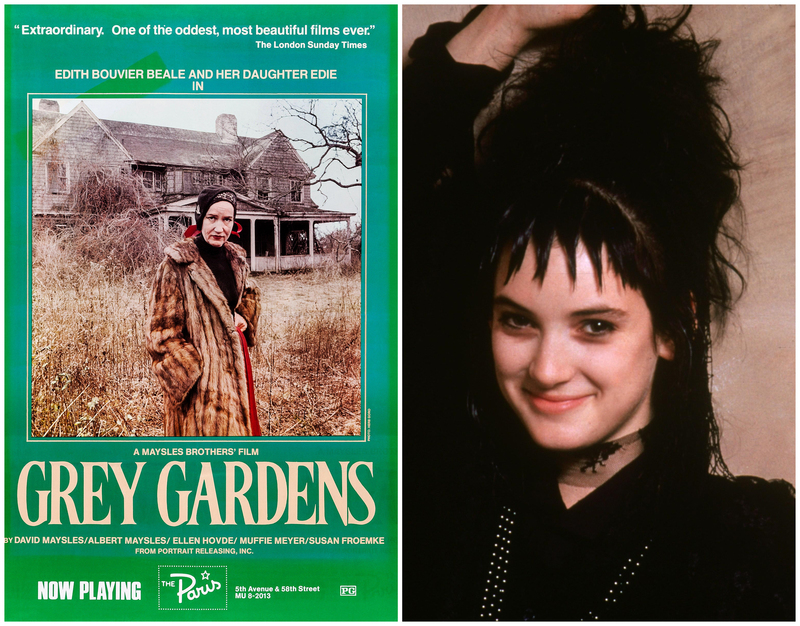
It's considered a masterful documentary. In addition, Christina Ricci based her performance of Wednesday from the same movie off Winona Ryder's performance from “Beetlejuice,” which had come out a few years earlier. Being a dark, spooky girl when you're actually a charismatic actress isn't the easiest thing.
Taking the Average
During the show, Gomez sometimes needed to know exactly what time it was, which was why he wore a pair of watches. He would check both and use the average time. Maybe it's crazy, but the more we think about it, the more it makes sense.

And we aren't the only people, too: it's becoming more popular for people to wear more than one watch for a variety of reasons, though it seems like most of them are for a fashion statement or a conversation starter. Gomez would also sometimes check the... unusual clock that was in the Addams family house, which seemed to be a Wolverine that would show up to growl out the hour.
Pets Really Bring the Home Together
It seems that the actual members of the family weren't strange enough – the Addams family had to add a bunch of animals to the house to make sure it was full. The most prominent or famous of these animal friends is the pet lion named Kitty Cat. Wednesday also famously had a Black Widow spider named Homer, as well as an anole, a small lizard that is a common pet.
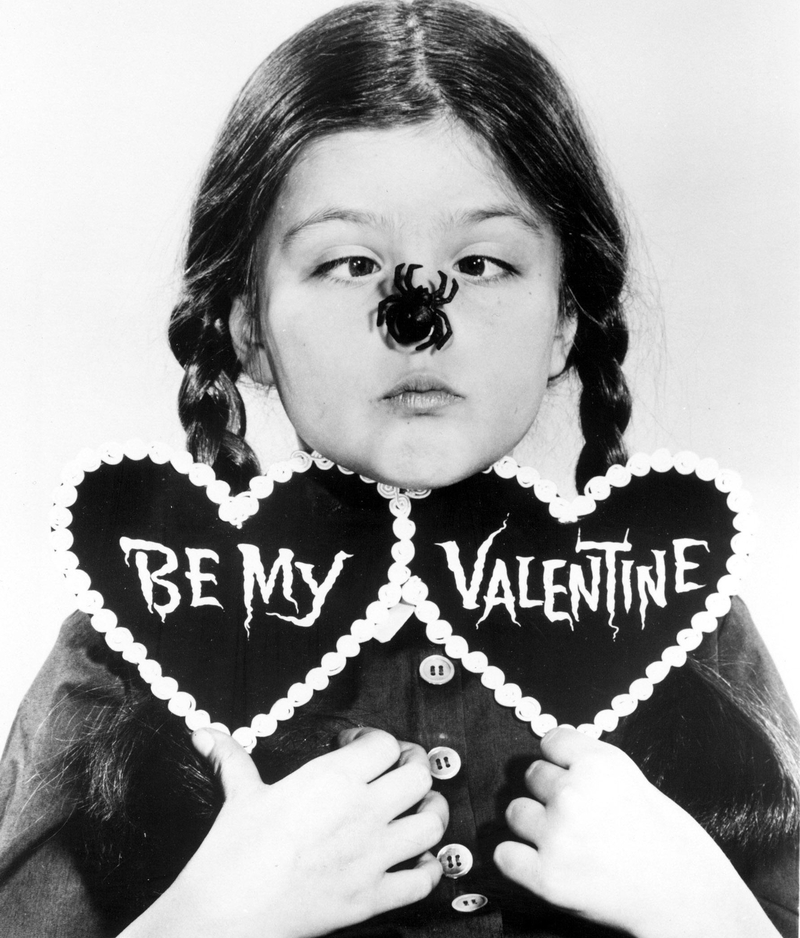
Or, more common than the other ones. There was also Pugsley's octopus, Aristotle (Named Socrates in the animated movies from 2019 and 2021), a scorpion named Nero from the Netflix “Wednesday” show, Morticia's pet vulture named Zelda, and a puppy named Butcher that eats human hair.
A Case of Maybe Mistaken Identity
Much of the plot of “The Addams Family” from 1991 revolves around the fact that the character Gordon, played by Christopher Lloyd, shows up claiming or appearing to be Uncle Fester (who is also played by Lloyd). Originally, the script never made it clear whether or not Gordon was a fake or had actually lost his memory, and the cast got sick of it.
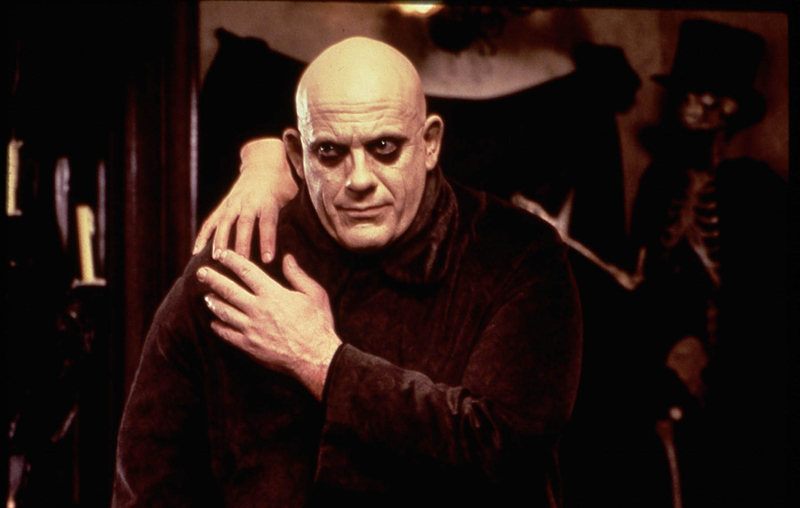
They wanted a definitive resolution, even just for themselves, and they elected Christina Ricci to go to the director and beg him to make Gordon actually Fester. In a strange twist, Lloyd didn't mind that things were never explained. Ricci was successful, however, as the movie eventually reveals Gordon is, indeed, Fester.
A Pair of Witchy Grandmothers
In the television version of the family from the nineteen sixties, Grandmama, played by Blossom Rock, is Gomez's mother. She's regularly seen dabbling in the occult and has plenty of ragged shawls and frizzy hair to go around.
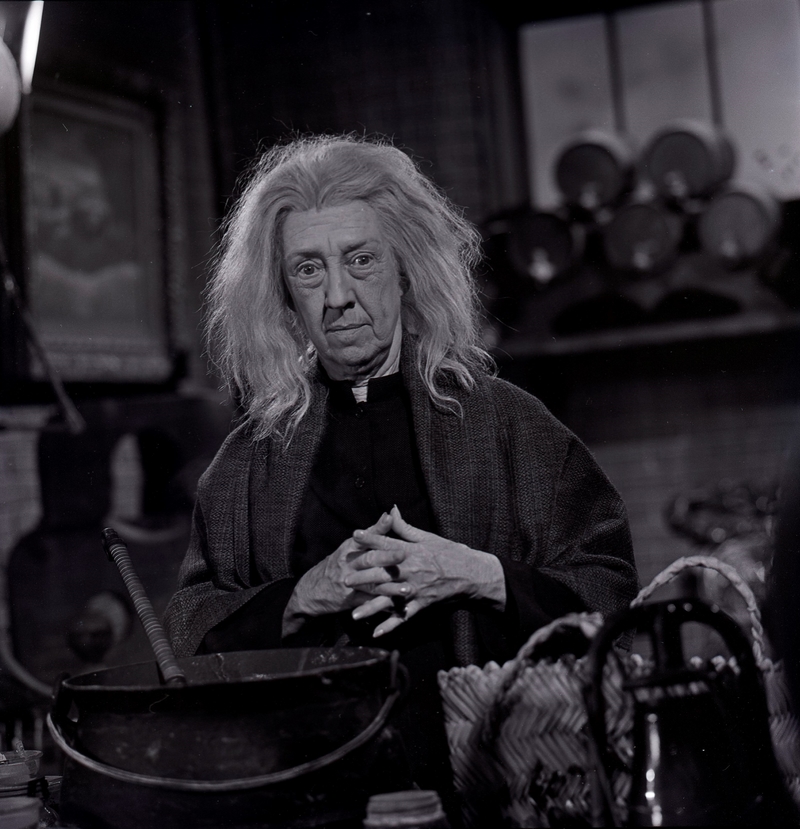
However, the Grandmama from the film series is not the same character – Gomez's mother is reportedly deceased, while the old woman we see, played by Judith Malina, is instead Morticia's mother, Granny Frump. While the differences between the characters are minimal – both are supposed to be witches – they aren't the same. Why they needed to make this change for the movie series is unknown.
Approved by Psychiatrists
Perhaps one of the most unexpected things about “The Addams Family” from the nineteen sixties is that despite the very odd family we see on the screen, the show had plenty of family values to demonstrate. Morticia and Gomez were loving and affectionate to each other, the children were respectful of their parents, they had very infrequent fights, and they had plenty of extended family members they spent time with.
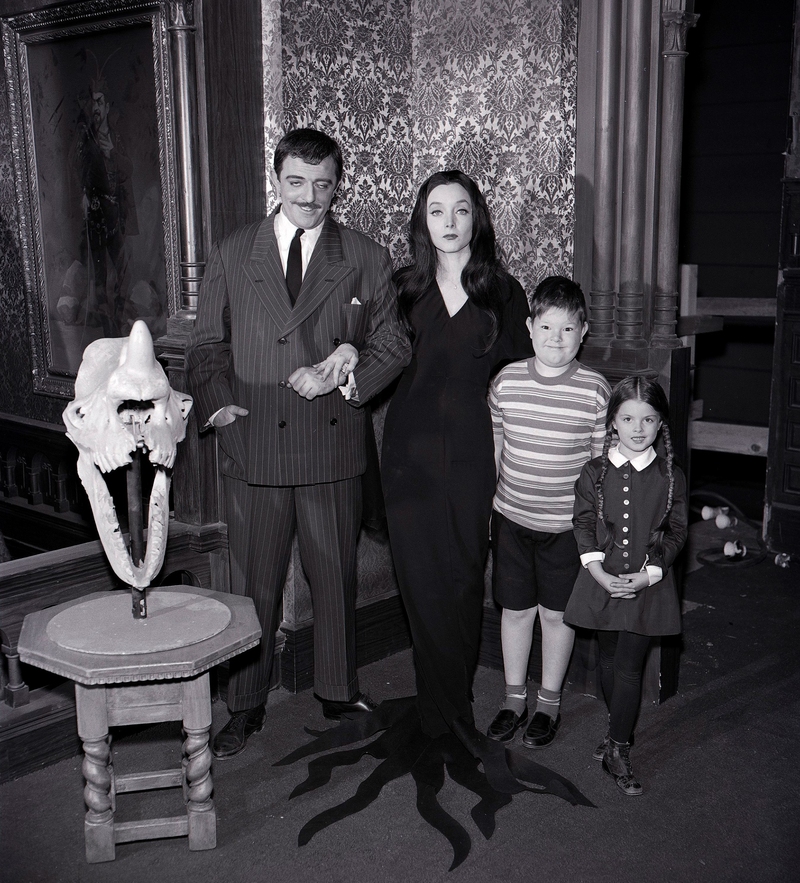
Psychiatrist Stephen Cox went on with more – there was little bickering, there weren't sides drawn, and there was plenty of love. Pugsley and Wednesday fought, but that was perfectly natural. Kids, you know. Even today, such a dynamic is rare and special.
Switching Sides for the Movie
Uncle Fester has been a part of the Addams family since the beginning, but he hasn't always come from the same side of the family. For the television show in the sixties, he was Morticia's uncle, and thus not actually an Addams. However, for the movies, he was Gomez's brother, Fester Addams.
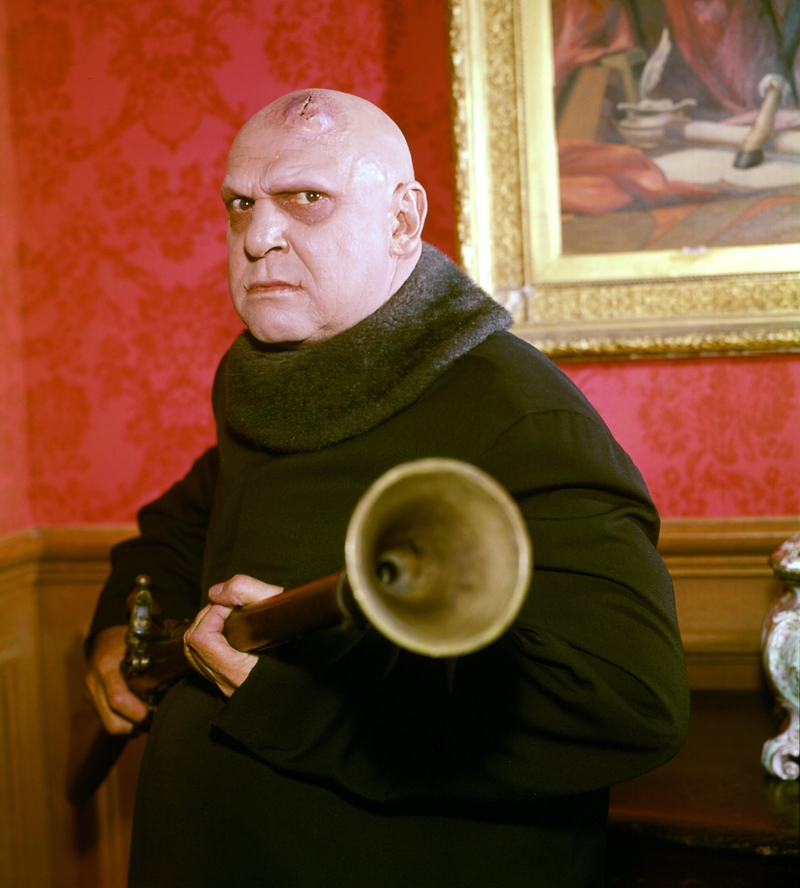
The change was perhaps an attempt to correct this oversight and make sure everybody in the house was a true member of the Addams family, but other than that, the reasoning is unknown. It's not like he really looks like either of them. Maybe Morticia can also power light bulbs.
A Surprisingly Colorful Set
Despite the show being shot in black and white and focused on characters that love the color black, the set was full of varying shades of pink and red. Why? Well, even though the show was going to be in black and white, the producers wanted to give it varying shades of gray when viewed.
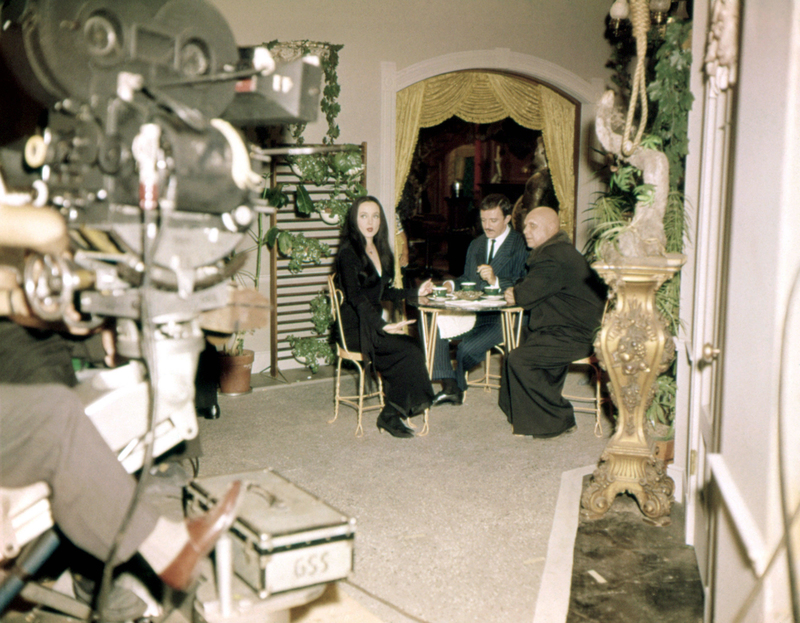
This means the elements of the set had to be in particular colors to show up properly. It was surely a bit odd to step onto the brightly-colored set and act like you were in a house that was all dark and gloomy. It didn't seem to affect the actors and actresses that much.
Making the Jump to the Stage
The Addams family made their Broadway debut on April eighth, 2010, at the Lunt-Fontanne Theatre. The show ran for seven hundred and twenty-two shows before it finally closed its doors. The music and lyrics were by Andrew Lippa, while the book (consider it the script) was by Marshall Brickman and Rick Elice.
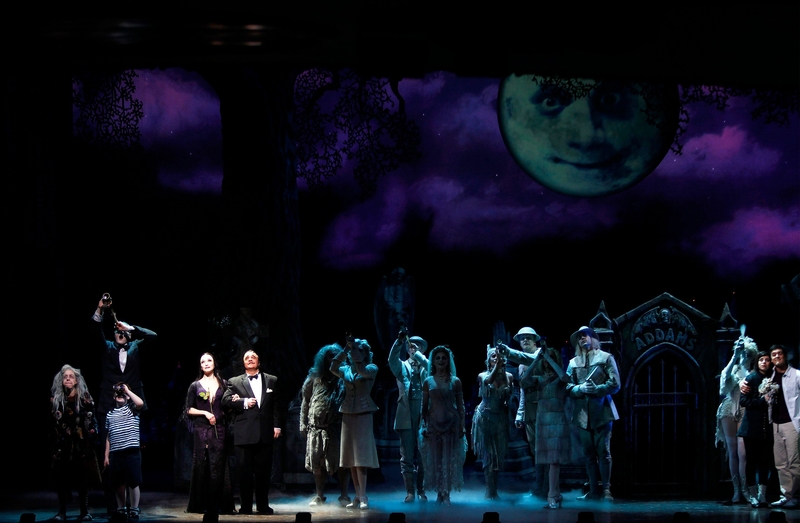
The play has Wednesday bringing her boyfriend – normal boy Lucas – to meet the family. Tensions mount, but everything works out in the end. Also, Uncle Fester uses a backpack rocket to fly to the moon at the end. Nathan Lane and Bebe Neuwirth played Gomez and Morticia during the original run.
The Chocolate Family
People have been parodying or giving nods to the Addams family ever since the first television show came out, but did anybody really expect the M&M's candies to do it? An ad came out in 2007 that had the multi-colored candies recreate the original opening of the show, using the theme song and everything.
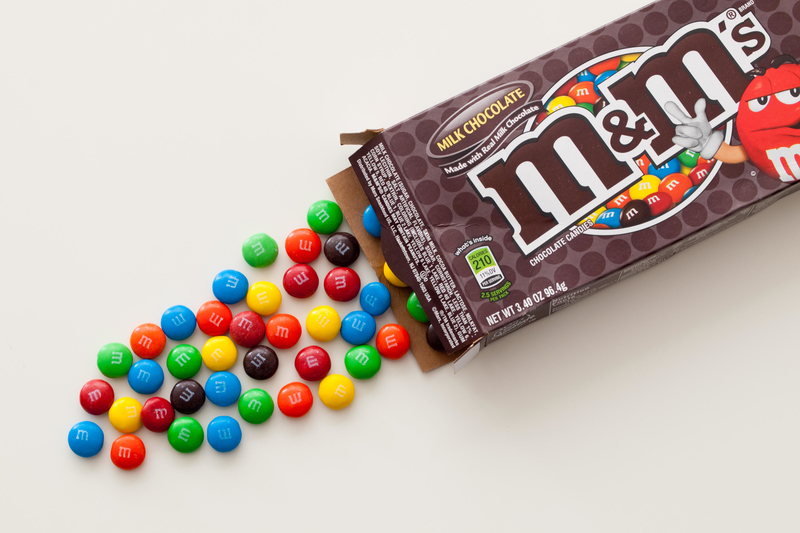
It was an ad for M&M's dark chocolate, and the ad proved to be incredibly successful. According to firms that measure the success of ads and product placements, it was the best commercial that aired during the month of April. You can still see the ad online, and it really did the original justice.
Recovering From a Long Night
During the 1993 film “Addams Family Values,” Gomez and the newest addition to the family, young son Pubert, are recovering from a bachelor party. Gomez fixes himself something that he refers to as “Hair of the Dog,” referencing a popular hangover cure.
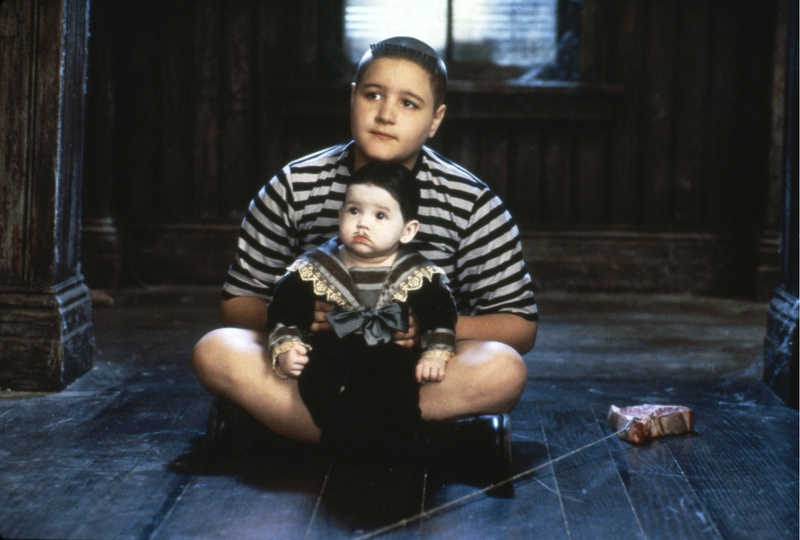
After that, however, he goes on to fix the infant Pubert, something he refers to as “Hair of the Pup,” which raises some worrying questions. At the same time, Pubert is wearing a pair of sunglasses, which goes on to suggest Pubert might have gotten a little too wild the night before. We don't know if Morticia would approve, but it is the Addams family.
A Real Spooky House
While the sets themselves weren't actually found inside a Gothic house, the house that viewers of the show from the sixties during the title sequence was a real building. You can find it at 21 Chester Place in Los Angeles. The prop and special effects department had to do a little work to add a third floor and a tower to make it a little spookier and bigger for the shot.
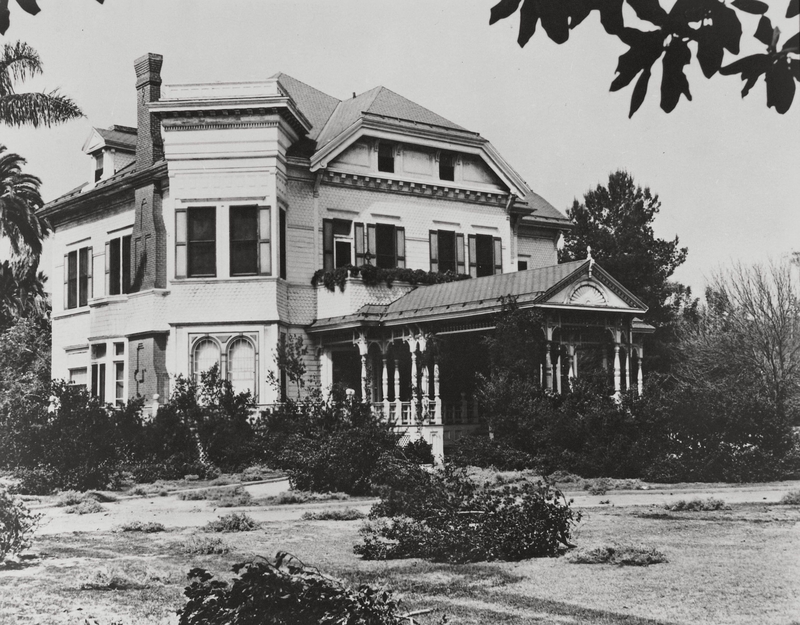
While early fans were able to take a look at the real thing, the house was torn down at some point between 1968 and 1972. Then again, almost every other building in Los Angeles went the same way, so we shouldn't be surprised.
It Isn't Easy Being Beautiful
While Anjelica Huston had no problem doing the actual actions for the first two Addams Family movies, and the overall experience was a positive one, looking like Morticia was another matter. To get the right look of the alluring wife of Gomez, Huston had to wear gauze eye-lifts to get a slanted eye look, resulting in her getting bad headaches while she wore them.
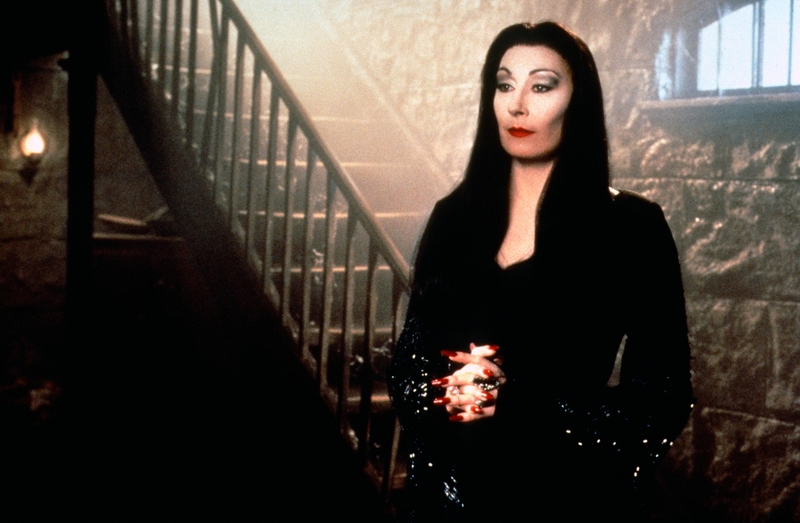
There's also the metal corset she had to wear to get the character's trademark waist. She wore fake nails, and she also had to get, as far as we can tell multiple neck tucks. She couldn't bend or even lie down in the corset, so by the end of the day, she was exhausted.
The Animated Addams
A number of different animated versions of this spooky family have been released. While the first time they appeared in animated form was with the Scooby gang, they got their own show a year later, in 1973. This show featured actors from the live-action show reprising their roles.
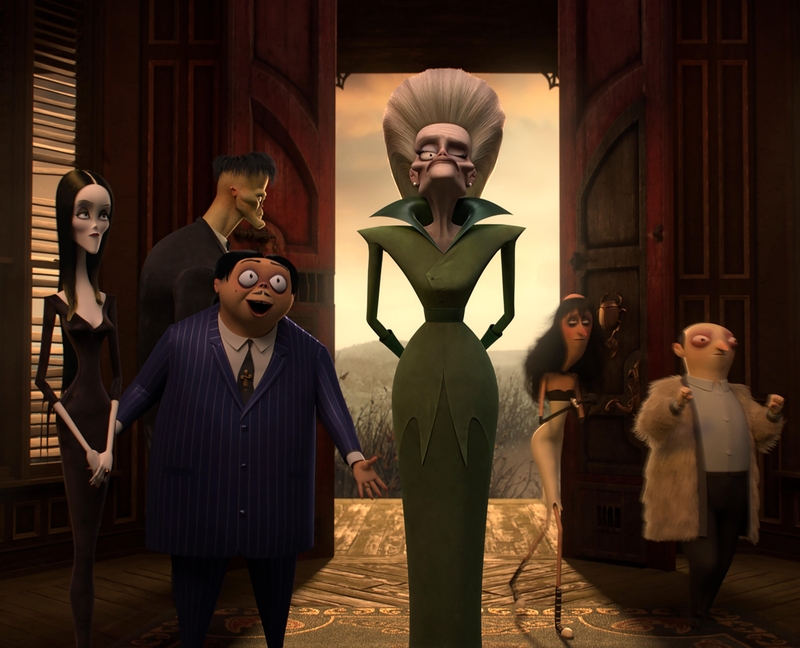
Another version came out in 1992 following the success of the first movie, which generally brought on new actors except for John Astin as Gomez. In 2019, an animated movie came out featuring the voices of Oscar Isaac, Charlize Theron, Chloe Grace Moretz, Finn Wolfhard, and other notable names. This included Snoop Dogg, who plays Cousin Itt. A straight-to-DVD sequel came out in 2021.
A Totally Different Cast
The first Addams Family movie could have looked very different if the original director had stayed on the project. That original director was none other than Tim Burton, and the project was so perfect for him that it's almost stereotypical. Cher was interested in playing the role of Morticia, but the producers were focused on getting Anjelica Huston from the very beginning.
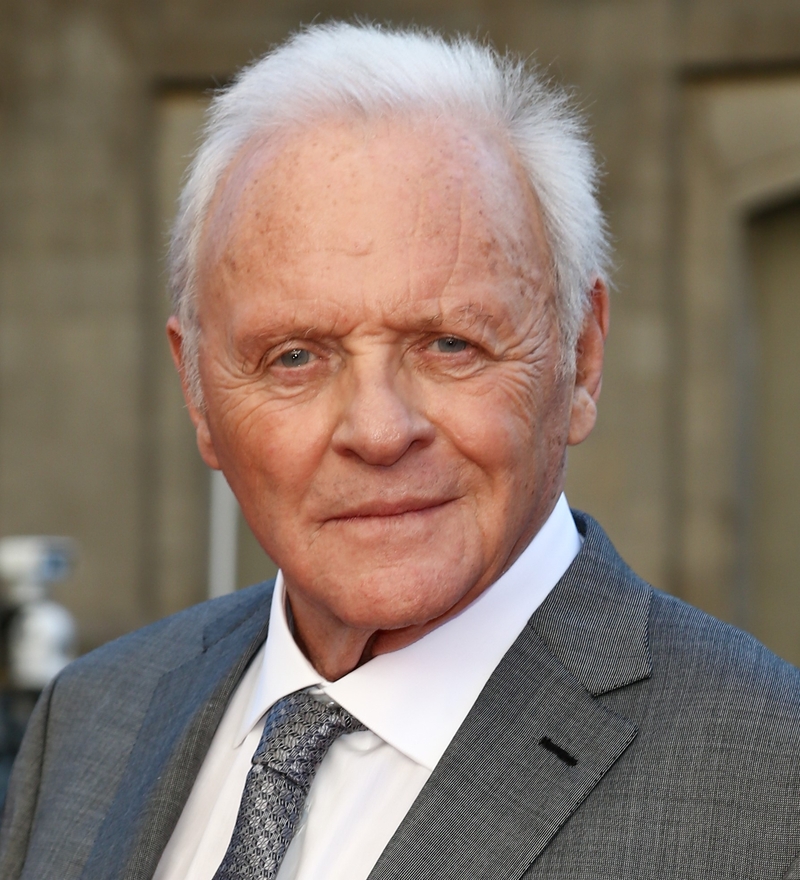
Actors Danny DeVito and Bob Hoskins were both offered the part of Uncle Fester, but both turned it down. Anthony Hopkins was also offered the role of Fester, but he decided to turn it down in order to play Hannibal Lecter in “Silence of the Lambs.” We think that was the right choice.
Reusing an Old Name
When the Addams family first appeared in the pages of “The New Yorker,” none of the family members had any names. And they continued to not have any names, amazingly, for almost thirty years until the television show was in development. Charles Addams suggested Repelli for the father and Pubert for the son.
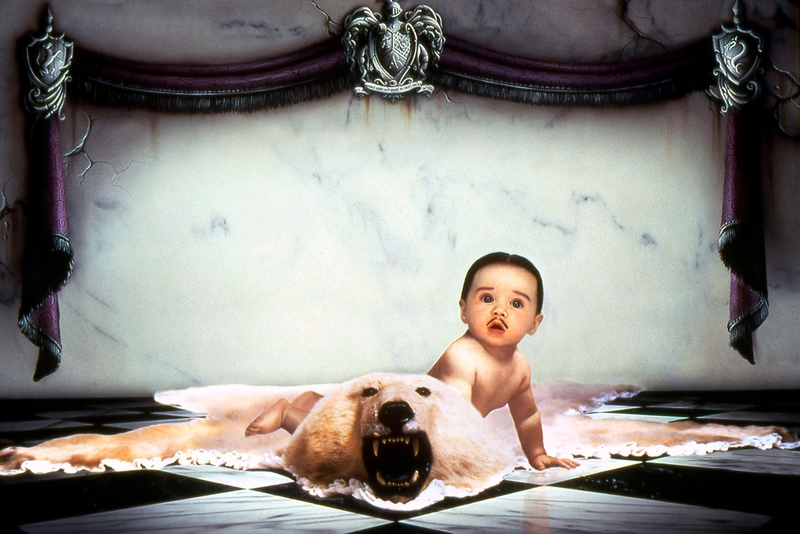
Repelli didn't make the cut because the final decision was up to John Astin, but Pubert was denied because it sounded too dirty. And you know what? They're right; it does sound dirty. Still, the name got used in the nineties for the third Addams child, who sports a small mustache. It still sounds dirty, but less so than it would have back then.
Kept Out of the Soundtrack
None other than Michael Jackson was contracted to write a song for the “Addams Family Values” in 1993, but a few different things kept him out of the finished product. He did write and record the song “It Is Scary,” but contract issues, as well as some hem-hem allegations at the time, eventually got the producers to drop the song.
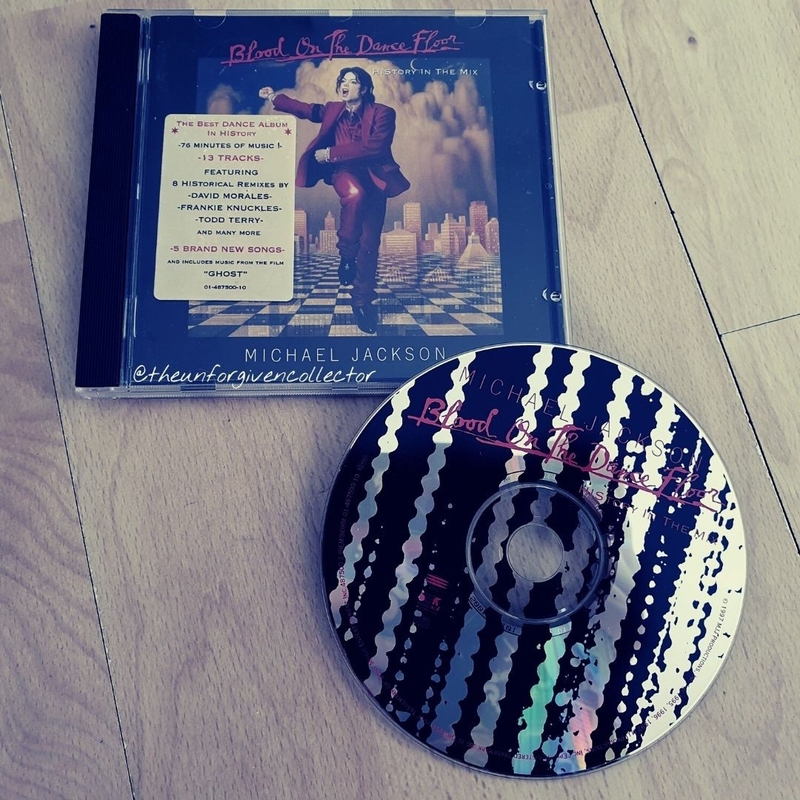
There was going to be a video to accompany a song, but that never even got made. However, the song eventually made it onto Jackson's 1997 album “Blood on the Dance Floor: History in the Mix,” as well as in his 1996 movie “Ghosts.”
Cousin Itt Was a Little Guy
If you've ever watched the television show from the sixties, you might have seen the diminutive Cousin Itt and wondered how he could have been so short. Was it creative camera angles? Did they get a child to dress up in a hair costume?
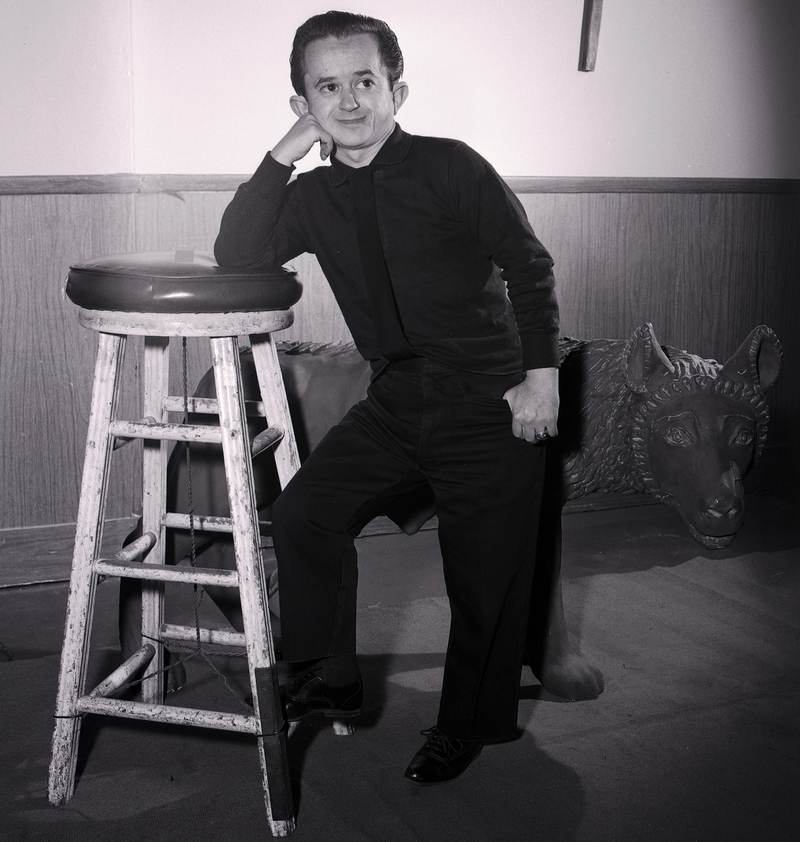
Well, it turns out that Cousin Itt was played by an Italian actor named Felix Silla, whose full height was a mere three feet, ten inches. Silla, who sometimes went as Felix Cilla, also played the robot Twiki in “Buck Rogers in the 25th Century.” You've also probably seen his work as an Ewok in “Star Wars: Episode VI – Return of the Jedi.”
A Hungry Bunch of Words
Like any family that can trace its lineage back through the generations, the Addams family had a Latin motto: “Sic gorgiamus allos subjectatos nunc.” It's not a perfect translation, but the meaning is more or less “We gladly feast on those who would subdue us.”
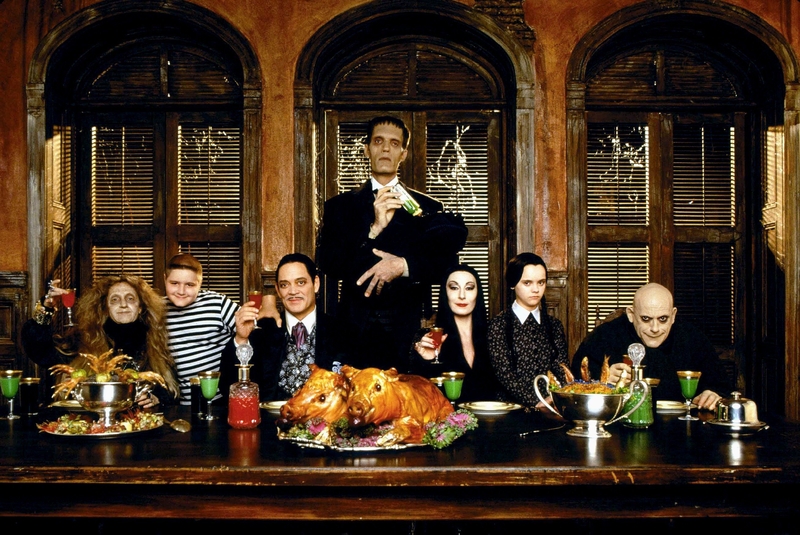
Thankfully, we never have to watch the family make good on this threat. Still, thinking about all the other strange things they get up to, we wonder if anybody has fallen prey to a family that would use this as their motto. Morticia does have a bit of a vampiric look to her, and who knows what Cousin Itt likes to eat?
Well, We're Sure He's Part of the Family
Many of the countries that have aired the Addams Family have their own name for Cousin Itt since the word makes no sense when not translated. This includes Spanish-speaking Latin American countries that call him Tio Cosa (Uncle Thing). In French, he's referred to as Cousin Manchin, which means Cousin Thing.
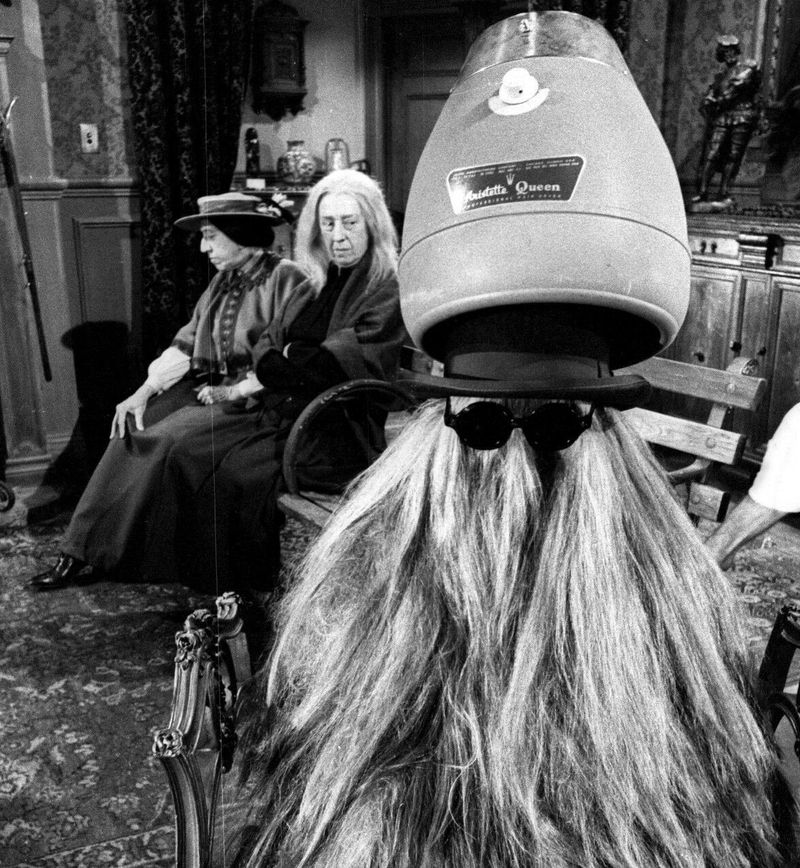
In Poland, he's known as Kuzyn Coś, which means Cousin Something, and in Hungarian, his name is Hogyishívják Kuzin, which more or less stands for Cousin Whatshisname. The fact that these different languages could find their own goofy names for this character is one of our favorite parts of the show getting to different countries.
John Astin Got to Pick His Character's Name
John Astin loved playing Gomez, and it might, in part, have been because he got to pick the name himself. The two options the producers gave him were Repelli or Gomez, and he chose the latter. Why, you might ask? Well, Morticia and Gomez had a very loving, affectionate, and even romantic relationship, which was a different take at the time.
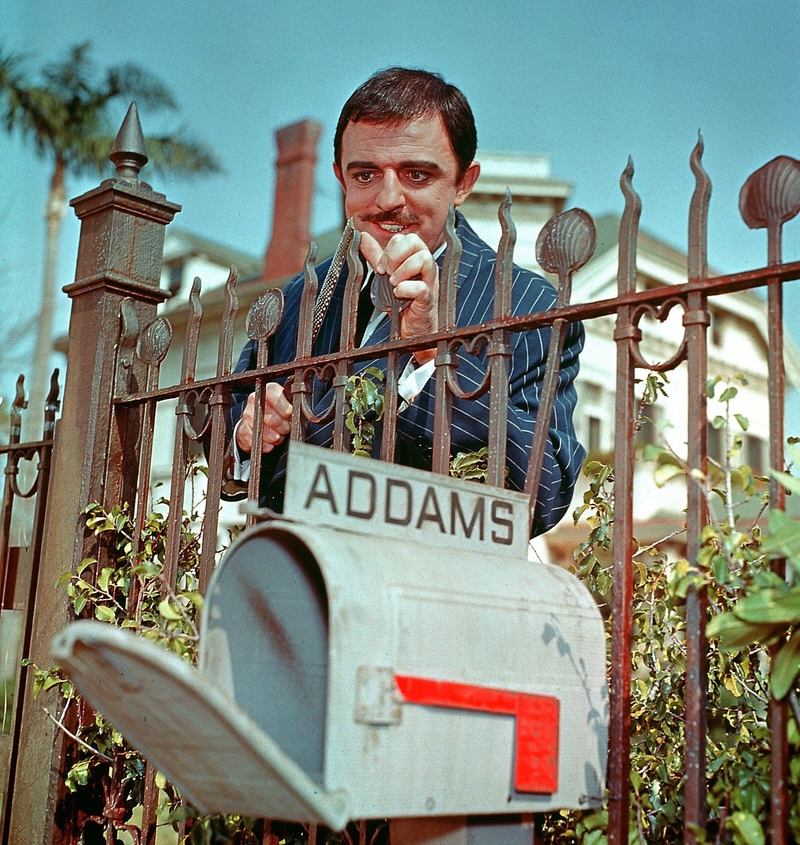
Astin simply thought that Gomez sounded more romantic than Repelli. He thought it sounded better when said in the same breath as Morticia. It's hard for us not to agree, mostly because now the names Morticia and Gomez are inexorably knotted together.
Playing Another Member of the Family
John Astin seemed to really enjoy playing his character Gomez Addams. That's what we take from all the stories here and elsewhere, but that's not all. He enjoyed playing it so much that he made an appearance thirty years after the first television show, but it wasn't Gomez. Instead, it was Gomez's father, Grandpapa Addams.
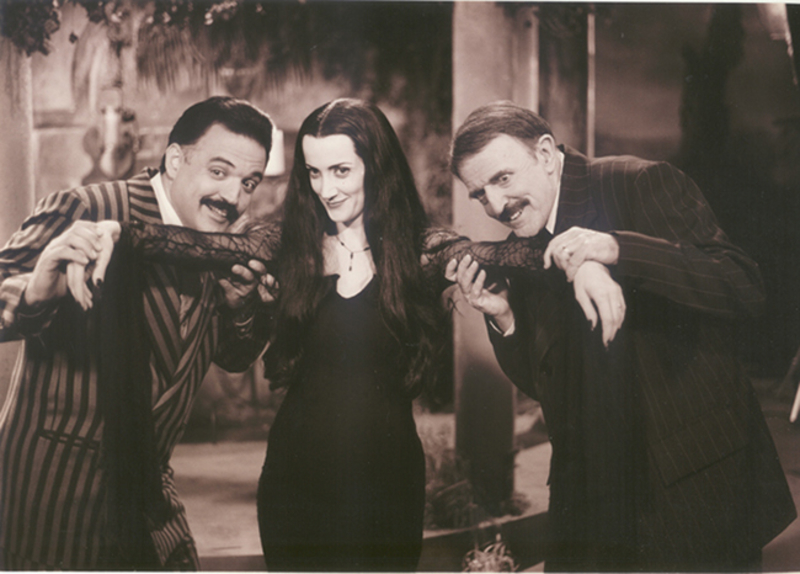
This appearance came as part of “The New Addams Family,” which ran for sixty-five episodes starting in 1998. In addition, Astin provided the voice for a number of animated versions of his famous character. Well, when you like your job, you never work a day in your life, that's what they say.
The Faceless Characters Weren't CGI
In the Netflix show “Wednesday,” we see a number of very strange students of Nevermore Academy who seem to not have any faces. That sucks. You might think this was achieved with some quick computer graphics, but it turns out it was all thanks to the magic of makeup and prosthetics.
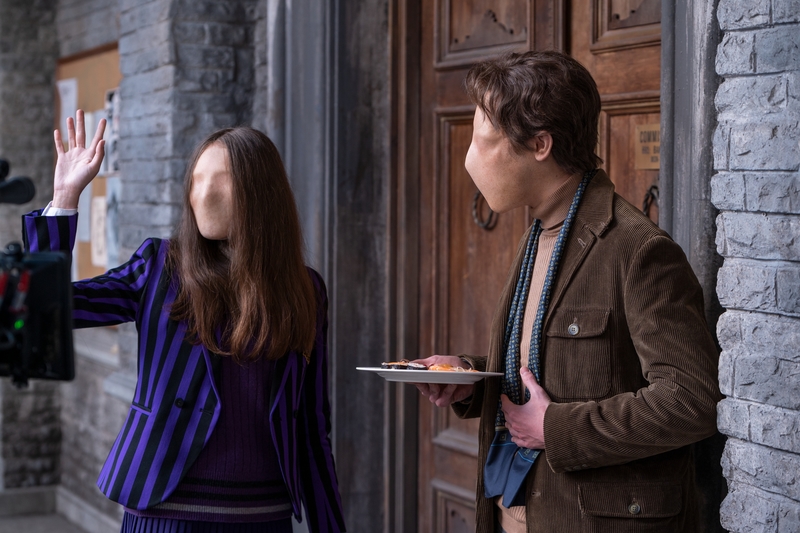
The stuff was applied to the students' faces and blended until it looked a little too natural. There is enough magic in the show to make it possible for these students to get by, but you can't help but wonder how they eat. Or see. Do they use sign language?
References to Burton Films
Tim Burton directed a few episodes of the new “Wednesday” show, which means, of course, plenty of Easter eggs for eagle-eyed viewers. During the “date” that Wednesday and Tyler go on, the two have popcorn bags that are black-and-white striped, just like the suit the main character of the film “Beetlejuice,” also directed by Burton, wears.

There's also the catsuit Wednesday wears during the canoe races, which looks like the suit Catwoman wears in “Batman Returns.” Tim Burton also directed “Pee-Wee's Big Adventure,” which has a truck driver named Marge dealing with a hitchhiker. There are also plenty of smaller background details, such as the weather vanes in the cafe.
A Homage to a Classic
Anybody who has a working knowledge of the history of horror fiction would have picked up on the nod to Stephen King's very first novel “Carrie” during the bloody prom scene in “Wednesday.”

In case you aren't aware, the climactic scene of that novel and the associated movies is the title character being chosen as prom queen for a joke in order to dump a bucket of pig's blood on her and humiliate her. She is certainly humiliated, but then she turns destructive. It's a nice homage, but it's almost a little TOO obvious to anyone who likes horror movies.
Keeping the Tradition Going
“Wednesday” features Thing a bit more than other titles in the property, mostly because he serves as Wednesday's guardian during the show. Just like in previous versions of the family, the hand is played by a real actor, this time by Victor Dorobantu.
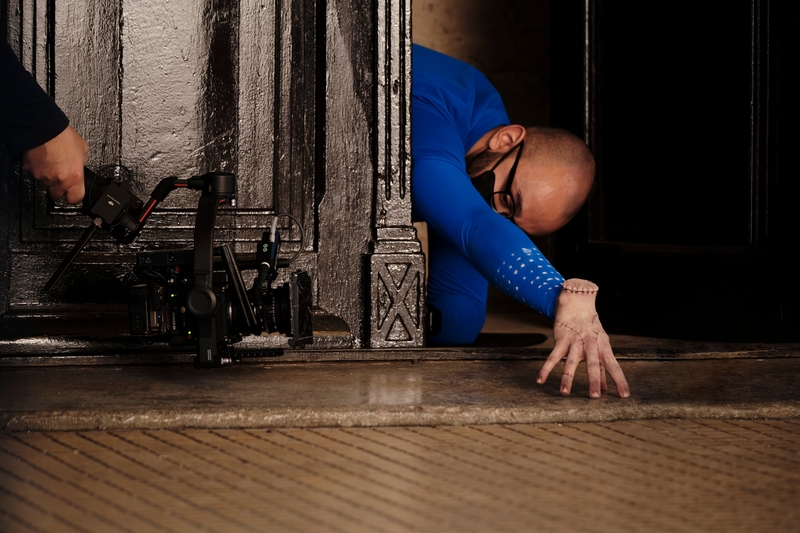
He wore prosthetic thumpy wrists and a blue chroma-key suit that could be removed without too much work. We're sure it was a lot of hard work getting Dorobantu into the right positions and then making the hand actually look like it was severed, but it's more or less the same thing that other versions of the show did.
Jenna Ortega Learned How to Play the Cello
Like any up-and-coming lady, Wednesday Addams had artistic pursuits like music in her self-titled show. While a lot of shows use hand doubles, tricky angles, or other tactics to use somebody who can actually play the instrument during these kinds of scenes, that wasn't good enough for Wednesday's actress, Jenna Ortega.

Yes, she actually learned how to play the cello for the show. While the cello might not be the most difficult instrument to learn, that's still a lot of hard work to go into a role. You gotta respect it. It made her cello solos look natural and real, something the show was dedicated to.
The Dance Scenes Weren't Choreographed by a Professional
The prom episode got the most buzz out of most of the show, and for a bunch of good reasons. Wednesday is wearing a fetching all-black dress, and she shows off some memorable dance moves. You might have thought it was expertly choreographed, but there were no professionals there to help.

Jenna Ortega came up with the dance moves all on her own, and the crew filmed it as she was doing them. It took just a single take to get the scene perfect, and the moves were all Ortega's creation. It's an impressive feat since most shows have plenty of dance experts ready to show off what they know.
Principal Weems Is Based on a Horror Classic
When you watched “Wednesday,” you might have been put off by the blonde and coiffed Principal Larissa Weems, played by Gwendoline Christie. She seems to come off as a little evil, but her look and overall design come from another piece of classic horror fiction.
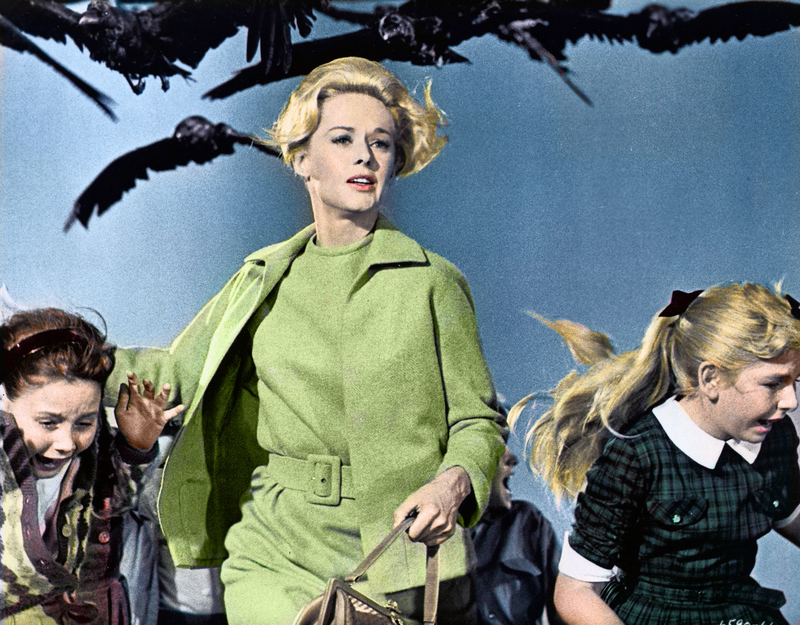
Tippi Hedren, the heroine of the thrilling Alfred Hitchcock movie “The Birds,” has a very similar style, including her hairdo and outfit. It's an easy detail to miss, but once you notice it, the similarities are too apparent not to keep picking up on. The characters themselves are not all that similar, but their looks are.
Going Truly Bald
It seems more than one actor for Uncle Fester decided to go all the way to portray the character as accurately as possible. Jackie Coogan shaved his hair off to get the role for the sixties television show, and Fred Armisen shaved his head to make the character look as real as possible for the Netflix “Wednesday” adaptation.

He could have easily worn a bald cap and gotten the makeup team to get it perfect, but he wanted to do it the real way. It doesn't really seem to make much difference in the show, but it's nice to see someone going all-in to play a character.
Christina Ricci Wasn't Going to Be Part of the Cast
Christina Ricci played the eldest Addams child in the movies from the nineties, so it didn't surprise many that she made an appearance as Wednesday's botany teacher and dorm mom. However, she wasn't originally going to be part of the cast.

The actress Thora Birch was in the role, and more than half of the show had been filmed before Birch had to drop out due to a family illness. Ricci expressed interest, and the show jumped at the chance, even if it did mean they would have to reshoot a number of scenes. It's a nice detail to include, though it almost didn't happen.
There's Only One Wednesday Here
Despite one of the earlier Wednesday Addams, Christina Ricci, being part of the show, Jenna Ortega tried to keep away from the elder actress. You'd assume that Ricci had plenty of pointers for Ortega ready to go, but they hardly spoke at all.

Jenna wanted her interpretation to be her own, uncolored by the way Ricci did it about thirty years ago. It's a bit of an odd move since most young actors and actresses love to learn from the more experienced among them, but Ortega seems to have done things the right way here. She's a real trailblazer for her age.
One of the Small Ones
The character of Lurch is seen in the new “Wednesday” show, and just like always, he plays the family's tall, creepy butler. Built to resemble Frankenstein's monster, the character is often the tallest member of the family, and it's the same way in the new Netflix show.
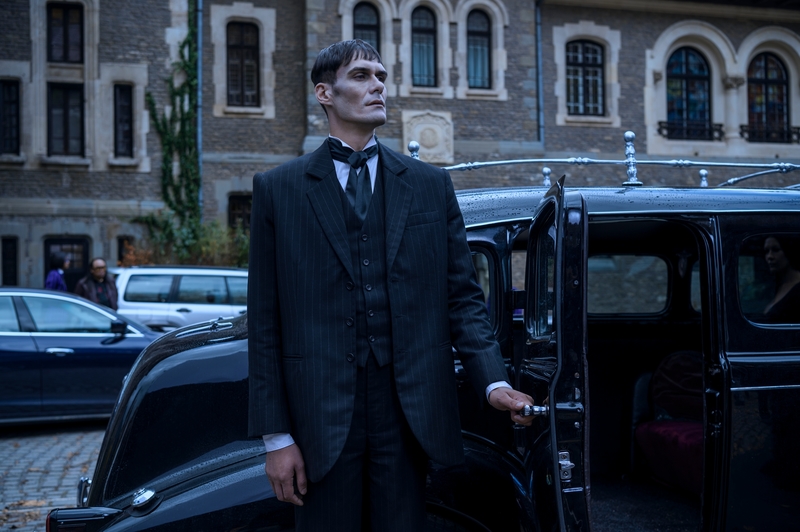
However, George Burcea, the character's actor, is the shortest to ever play the character, at a tiny six-foot-three in height. While this only extends to live-action adaptations (Jim Cummings, at five-foot-eight, provided the animated voice), it's still astounding. Other actors include Ted Cassidy (6' 9”), John DeSantis (6' 9”), and Carel Struycken, a staggering seven feet tall.
Staring Is Caring
One detail that almost got into the show accidentally is the way that Wednesday stares at things. This method of staring has been around for some time and is even called the Kubrick stare since it so often appears in Stanley Kubrick's movies. Here's how to pull it off: tilt your head downward, eyes tilted up as if you're looking over a pair of glasses.
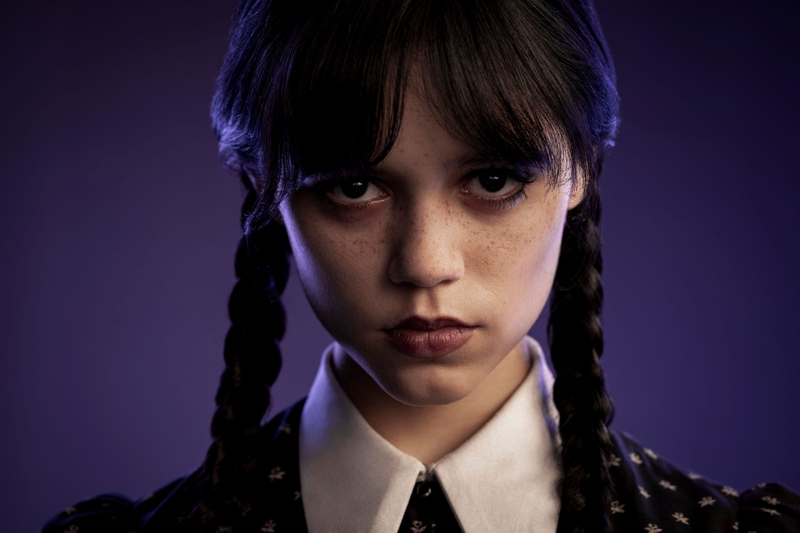
Ortega and Tim Burton chose it on purpose, but they never talked about not blinking. Still, Ortega did so many of the scenes without blinking that it became part of the character. Go back and check out the series again – seeing her blink is rare.
Plenty of References to Poe
No doubt you picked up on the fact that Nevermore Academy was named after the most famous piece of writing from Edgar Allen Poe, “The Raven,” but there are a good number of other references in the Netflix “Wednesday” show.
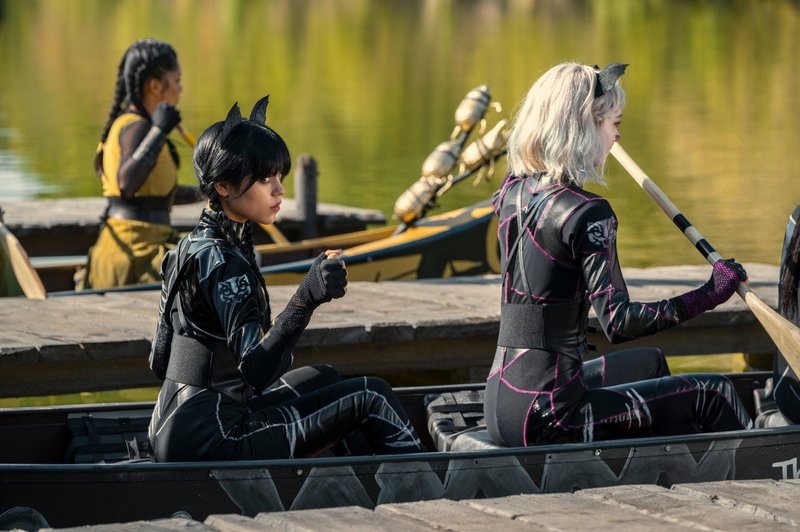
There are ravens all over the Nevermore campus, the trophy for winning the canoe races is called the Poe Cup, and Wednesday's outfit for those same canoe races is also a sneaky reference to Poe's short story “The Black Cat.” All of the team boats are references to Poe's stories, and the man himself was apparently an alum of the show's history.
Getting Into the Role
The girl who plays Enid Sinclair on “Wednesday,” Emma Myers, didn't have many acting roles before that one, and she wanted to make sure she got it right. Enid was her big breakthrough, but to accomplish that, she had to become a werewolf. Not actually, thankfully.

No, to get ready for “Wednesday,” she decided to attend werewolf boot camp. She admitted it was super weird, but it must have helped her get into the spirit of the character, even if it did mean she had to crawl around on the floor and growl for hours at a time. Well, we all have to suffer for our art.
The Head in Weems's Office
The office of Principal Weems is full of Easter eggs and references, both to the history of the Addams Family and to the long list of Tim Burton projects over the years. One of the most obvious, since it's sitting right on her desk, is the shrunken head.

This is a reference to the movie “Beetlejuice.” In that movie, you can very easily see a man that has a shrunken head, much like this one. And that's not to say it's just in his possession – the man's actual head is actually shrunken. It's not the most subtle reference, but it's still fun to see.
All Those Stuffed Mice Mean Something
Having Wednesday Addams see a therapist is something that only our current world could come up with, but we bet Dr. Valerie Kinbott might need a little bit of help herself if she spends all her free time stuffing mice. But did you notice that her mice all have particular outfits while they're on display?

Like so many other things in the show, these are references to previous Tim Burton projects, but there's a little more, too. You can see a Beetlejuice striped suit, a ringmaster outfit like from “Dumbo,” and one of the mice even seems to be dressed as the freaky clown Pennywise from the nineties “It” miniseries.
Tim Burton Gave the Chair to Others
While the series “Wednesday” has all the hallmarks of a classic Tim Burton project, and he did direct a number of the episodes, it was only the first four. Due to scheduling conflicts, he was unable to spend enough time in Romania to direct them all, though he was heavily involved in all other aspects of the show.

The fifth and sixth episodes were directed by Gandja Monteiro – her most high-profile project to date. It's also worth mentioning that the last two episodes of the season were directed by James Marshall, a journeyman director most well-known for his work on “Smallville.”
Using Optical Illusions to Make Him Bigger
The actor who played Lurch in “Wednesday” is six-foot-three, and while that's pretty tall, it just isn't up to the Lurch standard of towering over everyone and everything. The show made heavy use of optical illusions and forced perspective to make him look larger, among a number of other things.

Such tactics are commonly used in filming – they're all over the place in "The Lord of the Rings" movies to make the hobbit actors appear much smaller. One of the things “Wednesday” did to enlarge Lurch was to build two cars, filmed at the same time to make Lurch look like he was gigantic.
Keeping Her Skills Sharp
Wednesday proves to be adept at archery during her self-titled Netflix show, but big fans of the Addams family movies from the nineties will already be aware that the character has some experience.
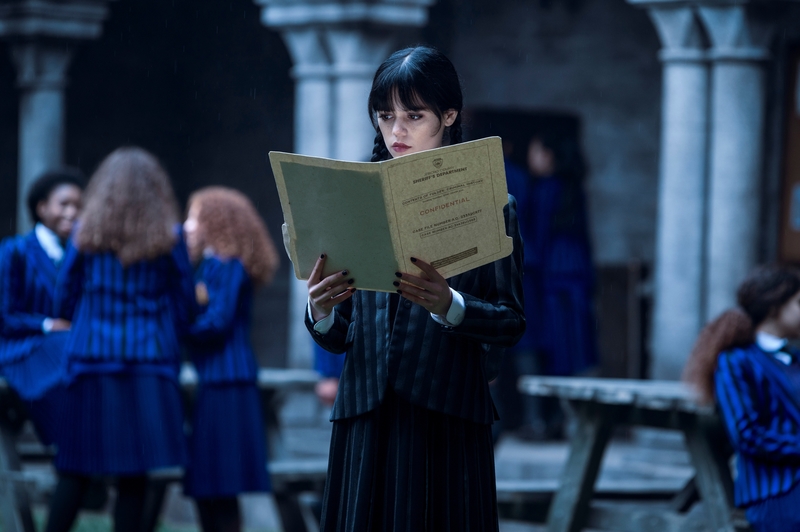
While it isn't totally out of the realm of possibility for strange Wednesday Addams to have plenty of practice at archery, her character has displayed the skill previously in the “Addams Family Values” movie from 1993. The series worked hard to develop Wednesday's character while also tying in elements from past versions, allowing older fans and newer fans to join together in appreciation of a new way to look at this classic character.
Tim Burton Is Always on Hand
It's clear that producer and director Tim Burton put a ton of thought and work into “Wednesday,” and one thing that he left all to himself was directing Thing, the disembodied hand that acts as Wednesday's guardian during the show.

Hand directing is a big part of movies since they're in so many close-up shots, but this is not usually what people mean when they talk about it. The hand was the entire character, not just a single limb, and a lot of work had to go into making it look like it was actually crawling around. And the rest was history.
The Wrong Kind of Viral
Jenna Ortega's dance scene from the prom episode is one of the most famous parts of the show, quickly going viral and reaching people who might not have even known about the show. However, it turns out that viral is an operative word there – Jenna Ortega had a little illness while she was shooting it.

Shooting for the show took place from September 2021 to March 2022, which meant plenty of protection and testing. Ortega tested positive right after filming the dance scene, which meant she had to isolate herself until testing negative. Thankfully, she nailed the dance scene in one take.
Every Single Angle
While practical effects were utilized to their fullest to get Thing, played by Victor Dorobantu, on the show “Wednesday,” there's only so much practical effects can pull off. A huge array of cameras of all different kinds was set up just to take pictures of Dorobantu's hand in order to make small changes to scenes or fix filming issues, despite the attempt to film it all naturally.

Seriously, take a look at all the cameras they had to use just so they could recreate a hand if they needed to. This was also likely because they wanted to create models and needed reference pictures.
Lots of Lessons
It's common for actors and actresses to have to learn new skills to take on certain roles, and Jenna Ortega playing Wednesday, is no exception. She chose to learn the cello – no small feat – but there are several other examples.
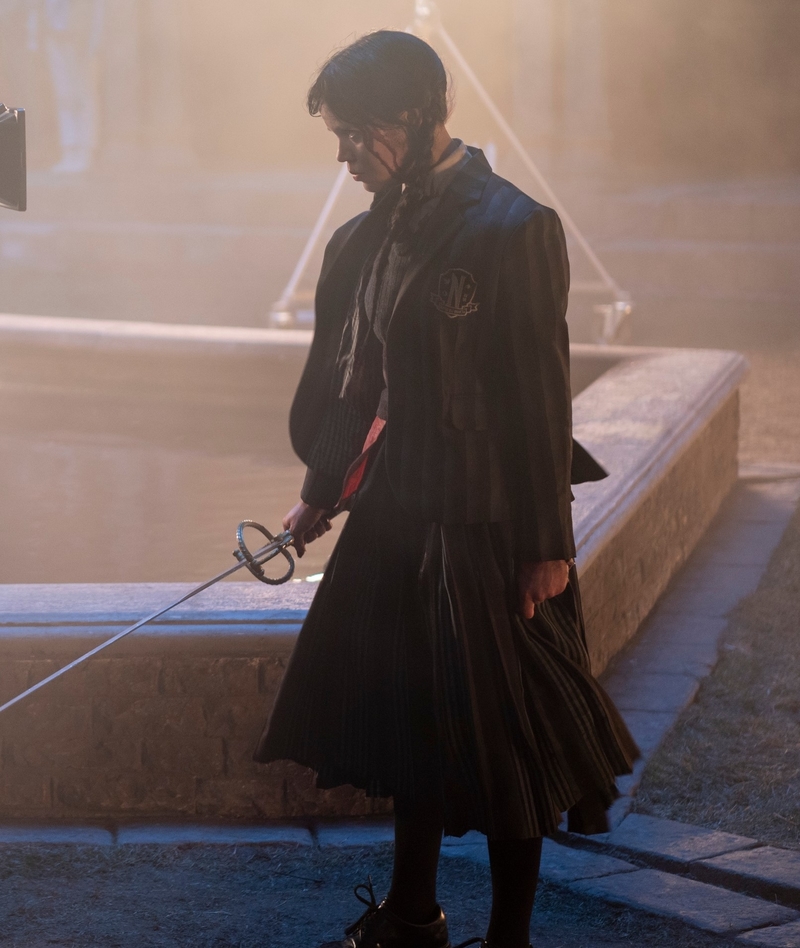
She took lessons in fencing and archery, learned how to canoe, and even learned German for the scenes of her pretending to be a pilgrim. Some actors choose to learn lines phonetically, but speakers of the language can always tell. It's a lot more work doing it this way, but it's also a lot more natural – and it makes the show really shine.
Getting Every Detail Right
While Wednesday is generally known for just wearing dresses that are somewhat drab and featureless, the Netflix show decided to give her a few more options. Still, her character had to be in everything she wore. Everything from the colors, fabrics, cuts, and accessories were discussed and chosen to make sure that they all fit the gloomy Wednesday.

And it's not just for the title character, either – Enid, Tyler, Bianca, Principal Weems, and Xavier all had special outfits made for them, all full of detail and designed just for the character in mind. Lots of attention to detail and small pieces is a very Burton thing to do.
A Few Different Locations
While a majority of the shooting for “Wednesday” took place in Romania (in order to add a creepy feeling), not everything was done in Europe. Romania was the perfect place, with plenty of gloomy forests and spooky castles, but stages had to step in to take over a few times.

It was mostly to have full control of the set since you can't always go smashing through stained-glass windows in ancient castles and get away with it. While actually filming in a castle is cool, sometimes it's just easier – or much cheaper – to make a set if you need to do something specific.
A Hand for Each Occasion
Thing plays a big role in “Wednesday,” which means that a lot of work had to be done to make sure it looked proper. There were different hand models made for a variety of different things, such as standing, lying down, clenched, etcetera.
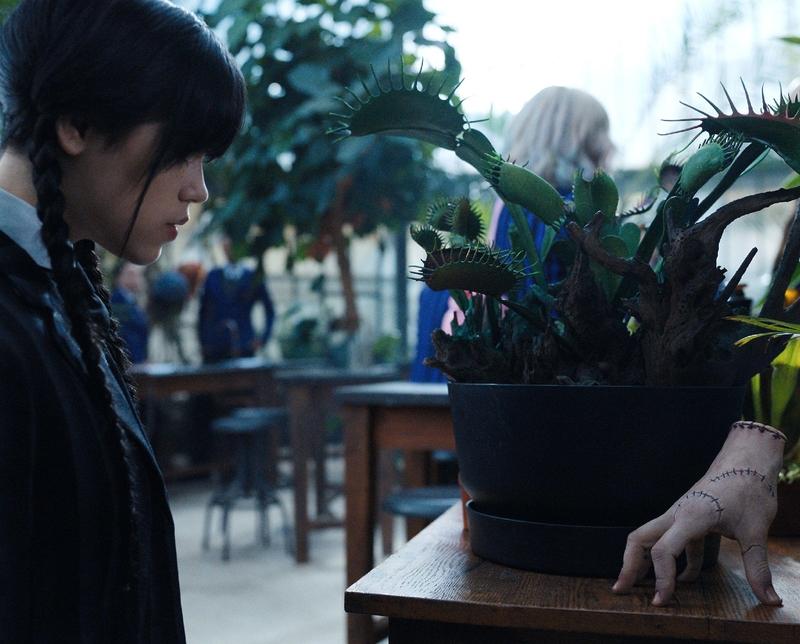
Each one had to have the same scars and stitching, and a lot of work had to go into giving Thing personality despite just being a hand. Credit Victor Dorobantu and Tim Burton every time you see this hand crawling along. Dorobantu had to move naturally, and effects had to be added to make it look properly scary and creepy.
Always Some CGI
While “Wednesday” has far fewer computer graphics than a casual viewer might think, there was certainly some, and a lot of it came from the Hyde monster. Still, there's a real human being inside doing all the actual acting before the computer team wraps a creepy monster look around it.
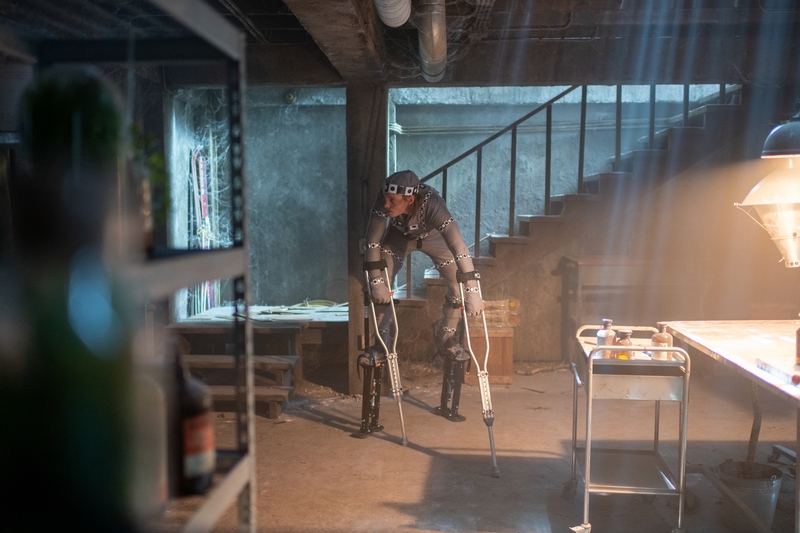
Daniel Himschoot acted as the person behind the monster, and he had to do it while wearing a CGI suit and walking on special stilts. A few things like monster hands were also used to help the actors behave a little more naturally, but at the end of the day, it was still the computer that had to create the monster.
We All Have to Make Sacrifices
While filming “Wednesday,” Jenna Ortega spent a lot of time in Romania, which does not have as many food options as she was going to find in the States. Ortega is vegan, but while filming for months in Romania, she had very few vegan dishes available.

Due to necessity, she temporarily switched to being a pescatarian – someone who will abstain from all meats, except for fish – in order to have something to eat. The only other option for her was to drop the role and head back to the United States, something that she definitely was not willing to do.
Leading the Way Into the Future
When you think about the Addams Family, you probably don't think of high-tech. Their clock is a wolverine, for Pete's sake. You might be surprised, then, to find out that they were the first television family to have a personal home computer. That's pretty advanced for a spooky family.
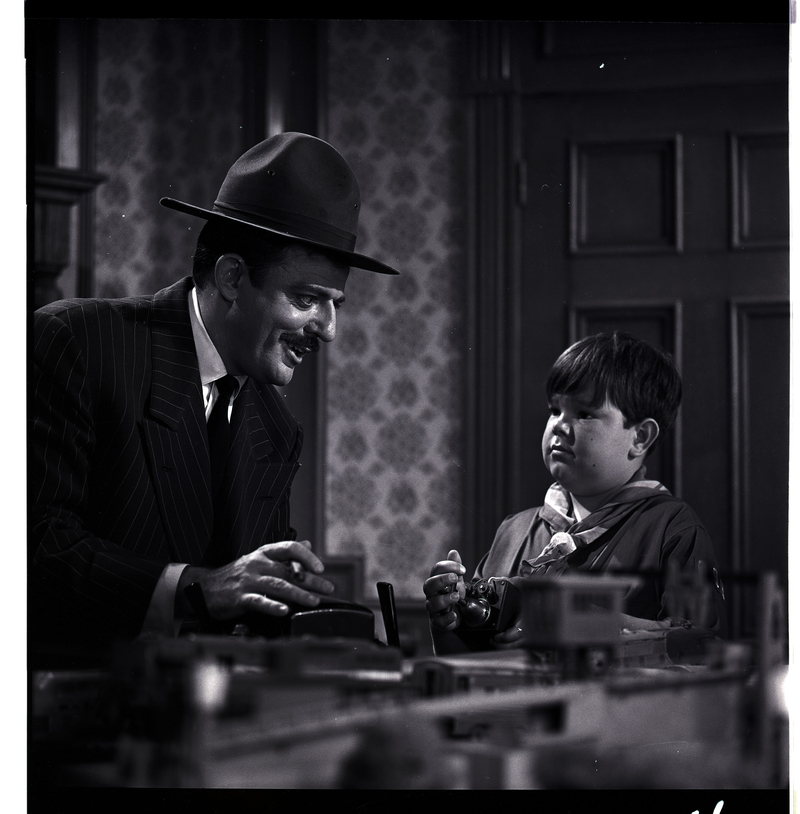
It wasn't exactly a laptop, but it still did computing right from home. This was even before Batman debuted the Batcave computer. The computer the Addams Family had was a UNIVAC, built by Gomez and Pugsley, and it was used to calculate a trip to the moon, predict horse races, and a few other things.
Shooting Around a Missing Star
While filming “The Addams Family,” the first film in the trilogy of 20th Century Fox movies, Raul Julia played Gomez and reportedly loved doing so – it was apparently his favorite role. Except for when he burst a blood vessel in his eye.
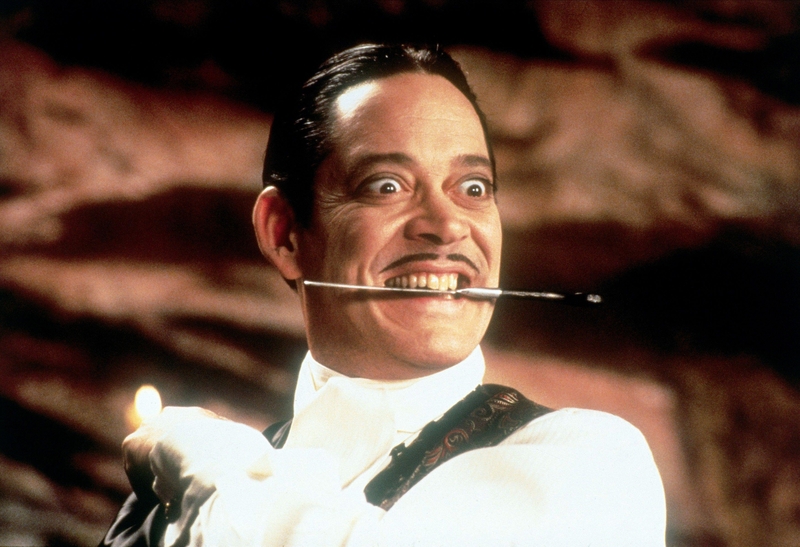
Not only can this be painful – and lead to vision problems – but it also created a big red patch in one of Julia's eyes. While it's not too far off from something you'd see in the Addams family, the movie decided it would be best to give Julia some time off so he could recover. They had to shoot other scenes while he rested.
Going Back to His Roots
“The Addams Family” was Barry Sonnenfeld's directorial debut after serving as cinematographer on a number of well-known films, and he had to step back into that role for some time. Near the end of shooting, director of photography Owen Roizman quit and was replaced by Gale Tattersall.
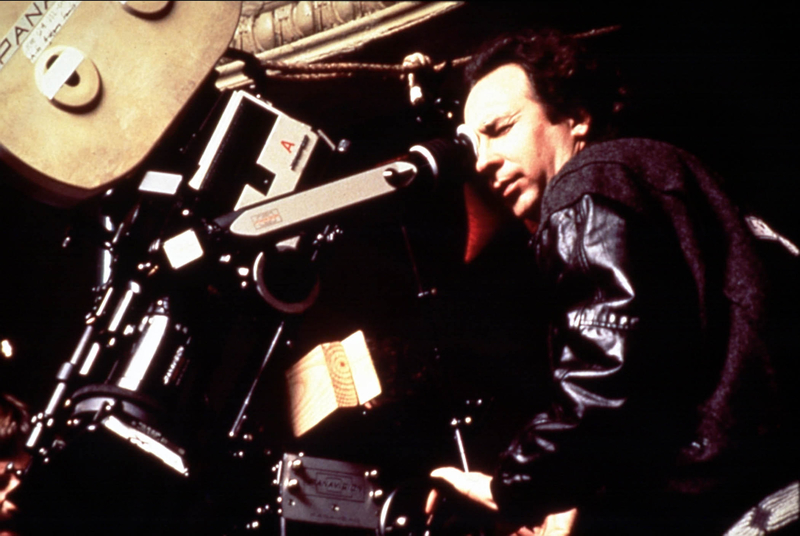
Shortly thereafter, however, Tattersall had to be rushed to the hospital, and Sonnenfeld served as a cinematographer while also directing. To no one's surprise, the movie ended up running over schedule, but it was still finished and still managed to do pretty well, so all is well that ends well, as Helen would say.
Getting Sold Off
The original production company for “The Addams Family,” Orion, was worried about the movie going over budget. The company had suffered a series of flops at that time and was worried about its bottom line. Thus, during production, they sold the film to Paramount. They thought the film would be another flop, but they were dead wrong.
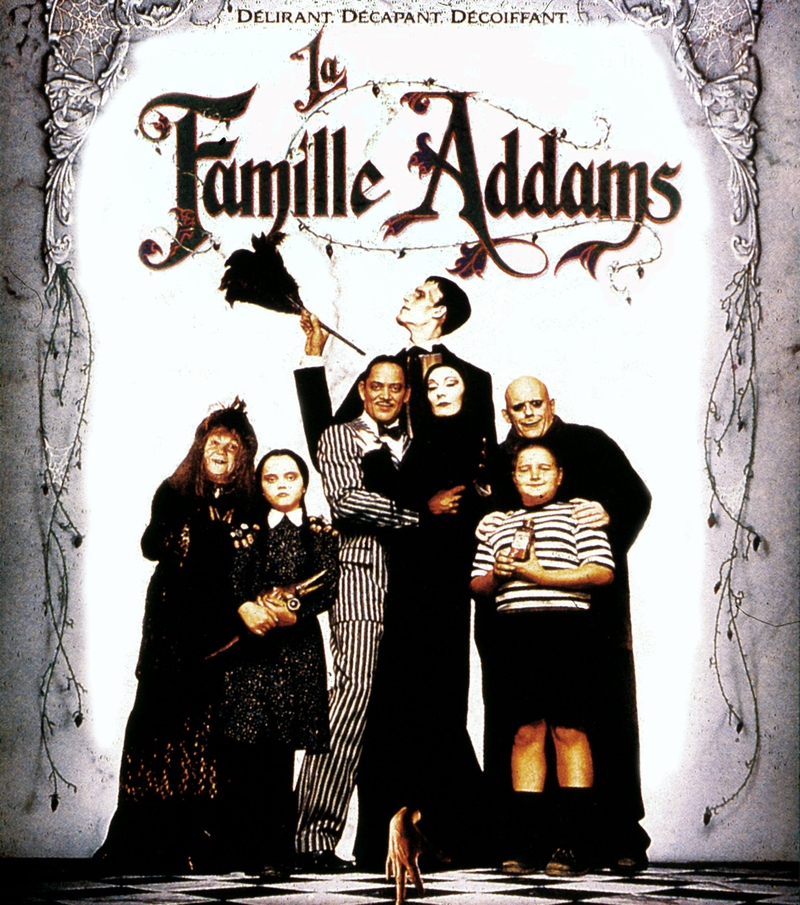
With a budget of around thirty million, the film took in almost two hundred million dollars at the box office. Paramount was pretty pleased about all that, but the people working on the movie weren't notified – by either company – they eventually found out, thanks to a journalist.
Famous for Her Witchy Roles
The woman who played Granny Hester Frump, Morticia Addam's mother, in the 1964 television show has some strong bona fides when it comes to playing a witch on the screen. Not only was she a witch in this show, but she's also one of the most famous witches in movie history – maybe even the most famous of all time.
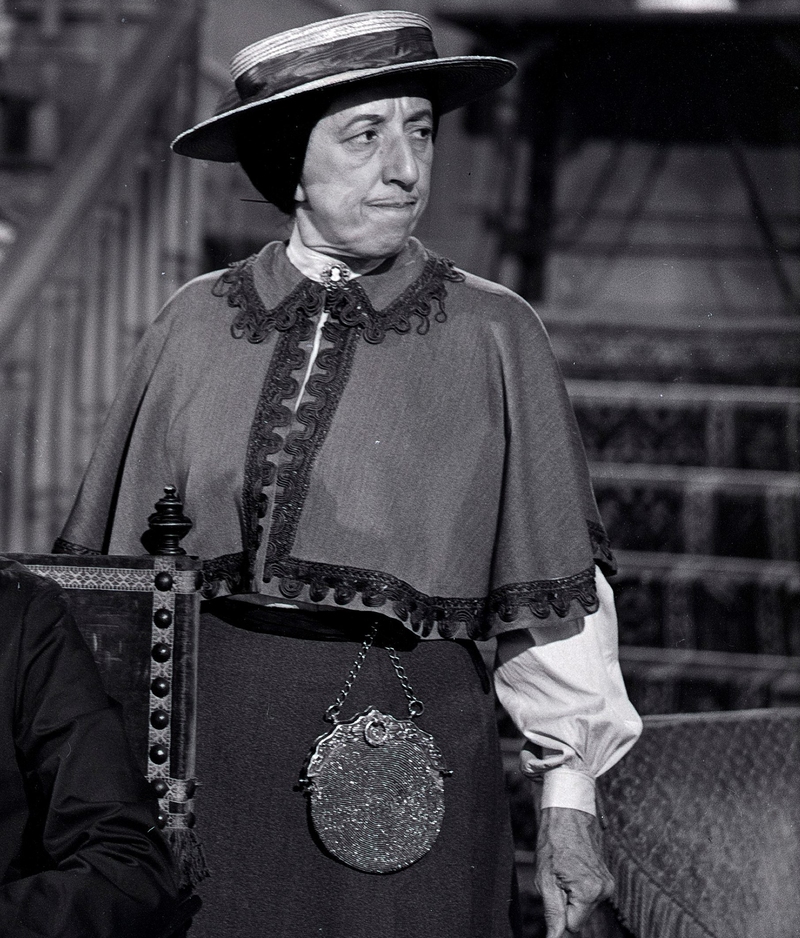
Yes, it's Margaret Hamilton, the woman who played the Wicked Witch of the West in “The Wizard of Oz” from 1939. Now that's some serious witch material to be able to brag about on your resume. Nothing like having an expert provide some truly witchy performances.
Bad Timing
Despite the Addams Family being a property that had been around for a while, the sitcom only lasted two seasons before it got canned. It was popular, but people got tired of it quickly. Why? Well, at almost the exact same time, a TV show called “The Munsters” came out.
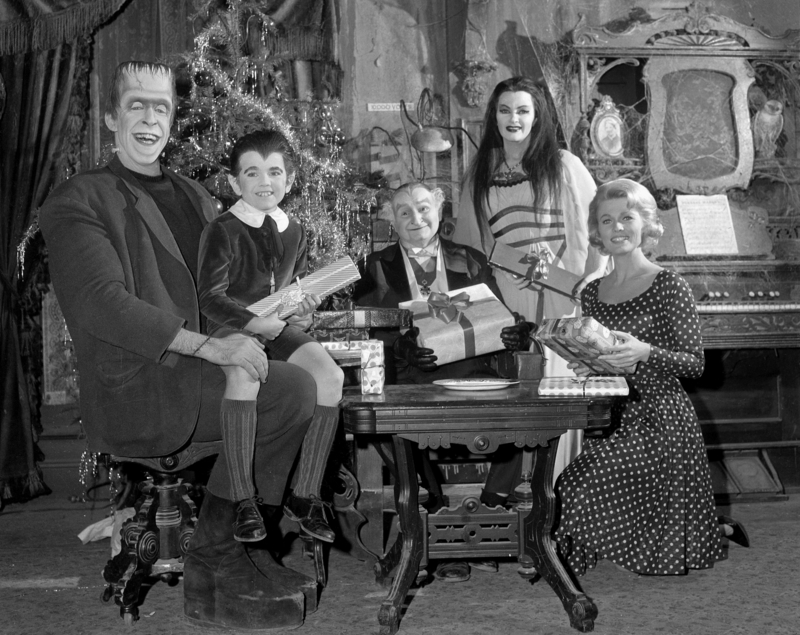
In fact, initial airings of the two shows were mere days apart — “The Addams Family Goes to School” debuted on September eighteenth, while “Munster Masquerade” came out on September twenty-fourth. The TV-viewing public might have stomached one monster family for longer, but they got burned out before long on a pair of them.